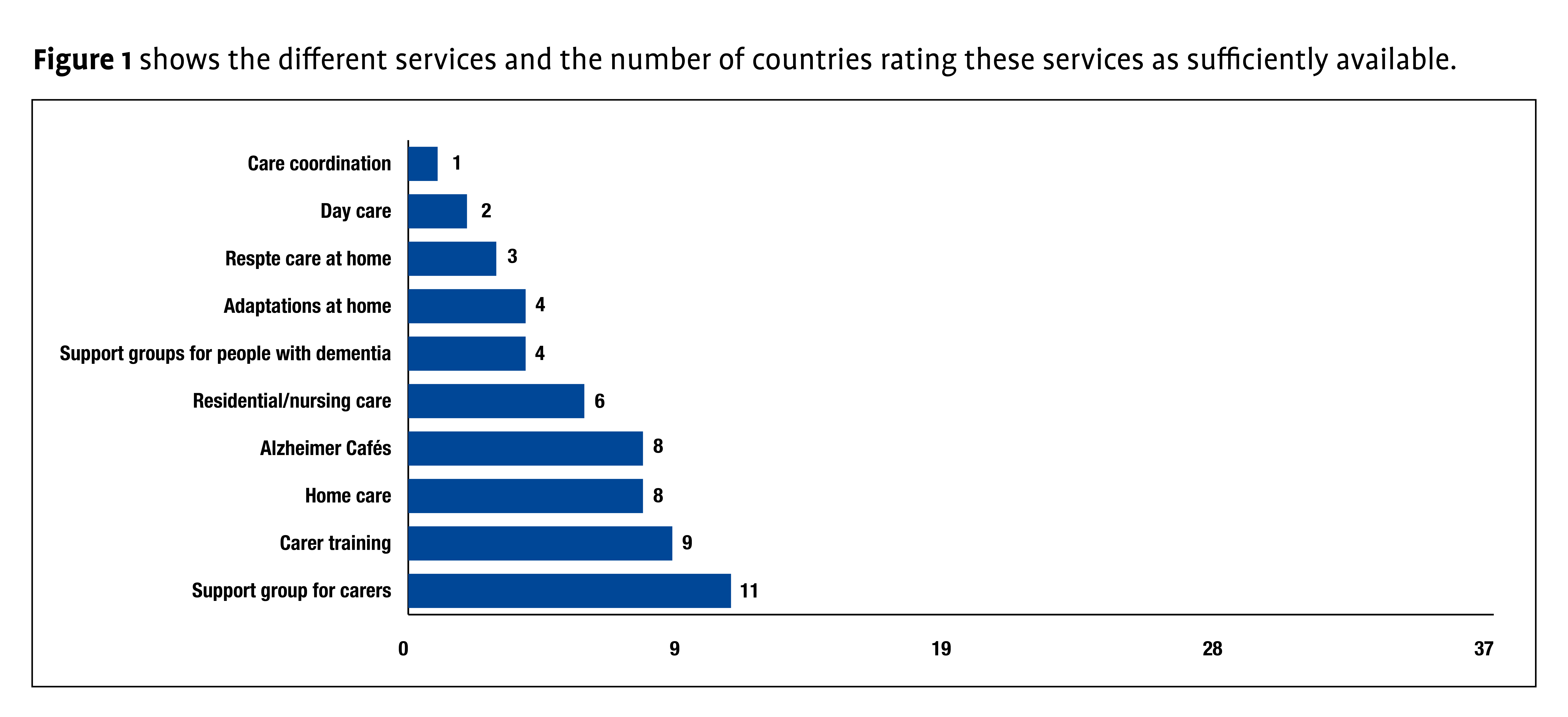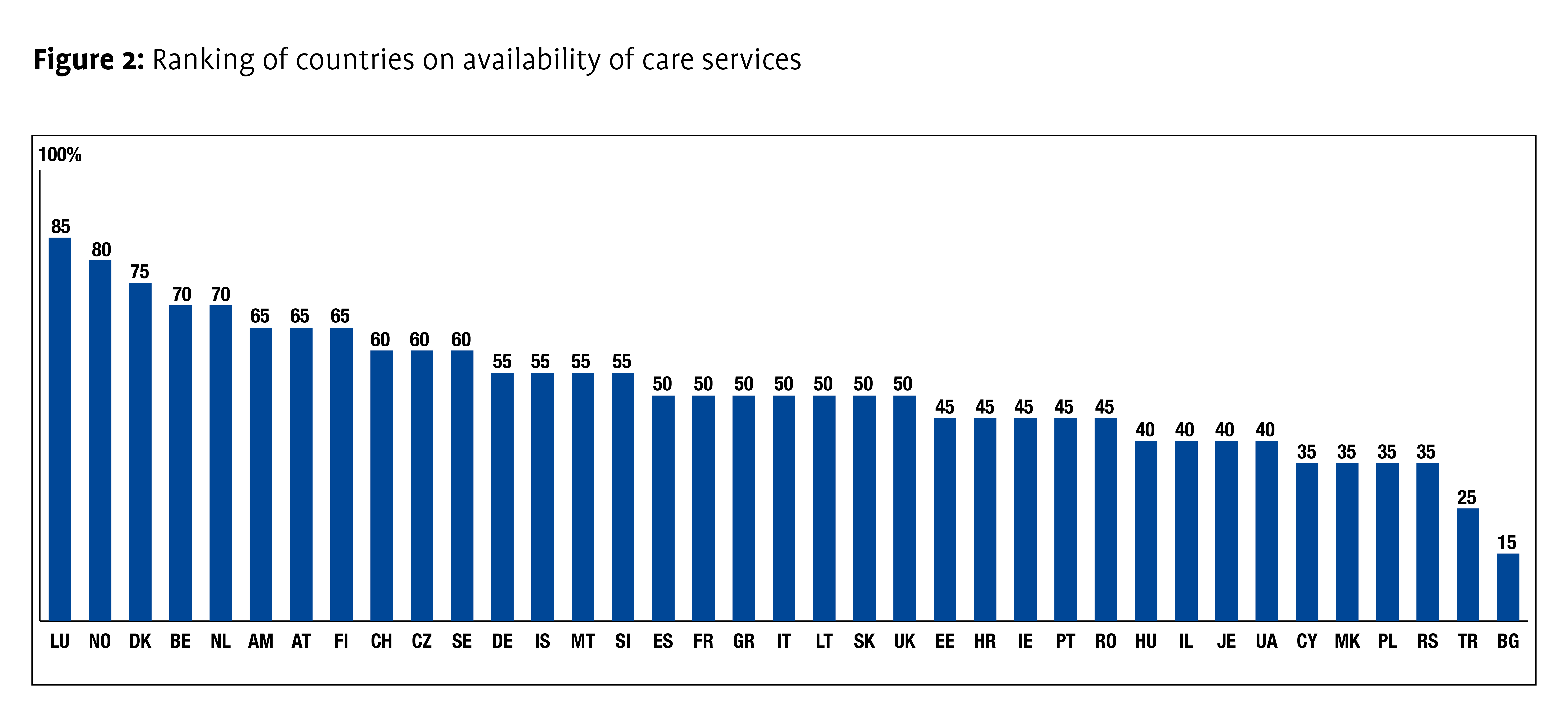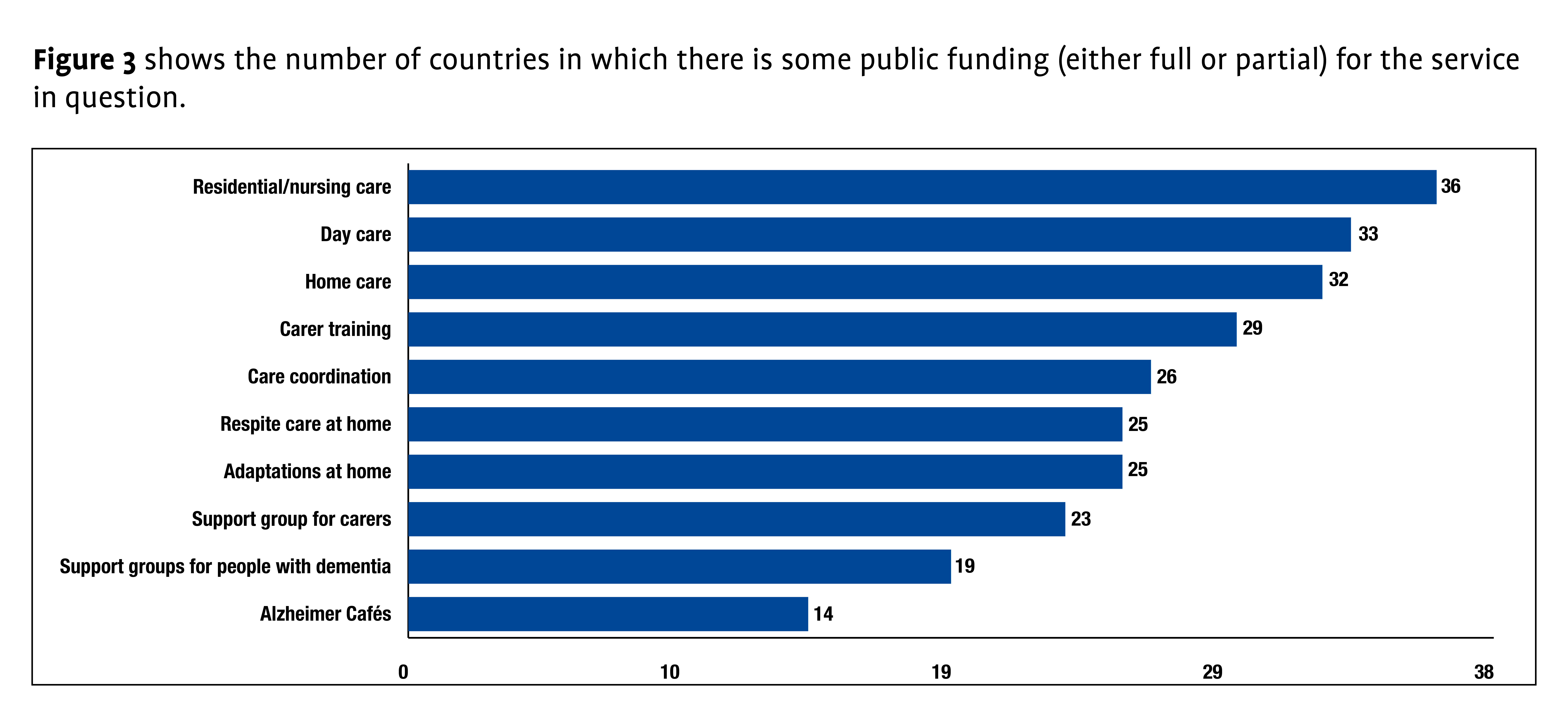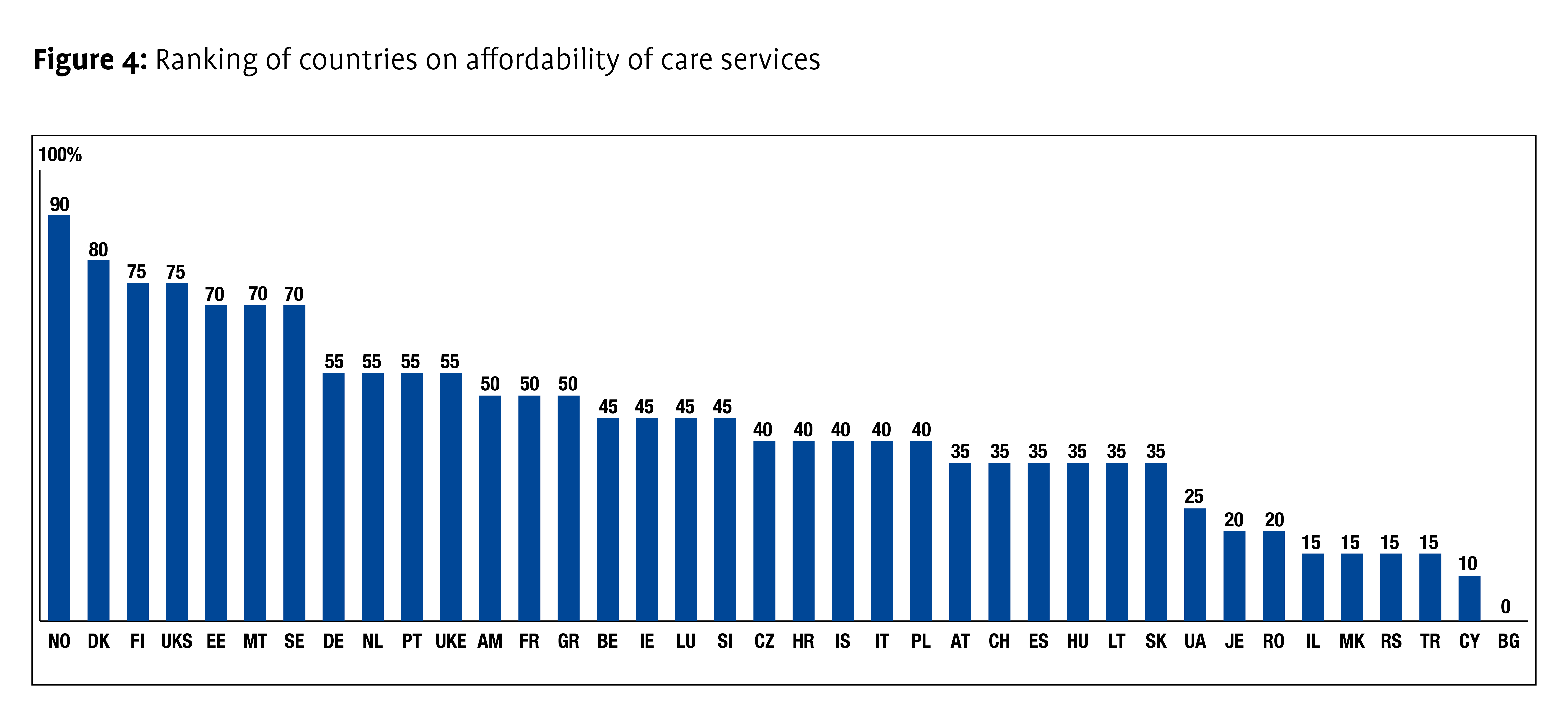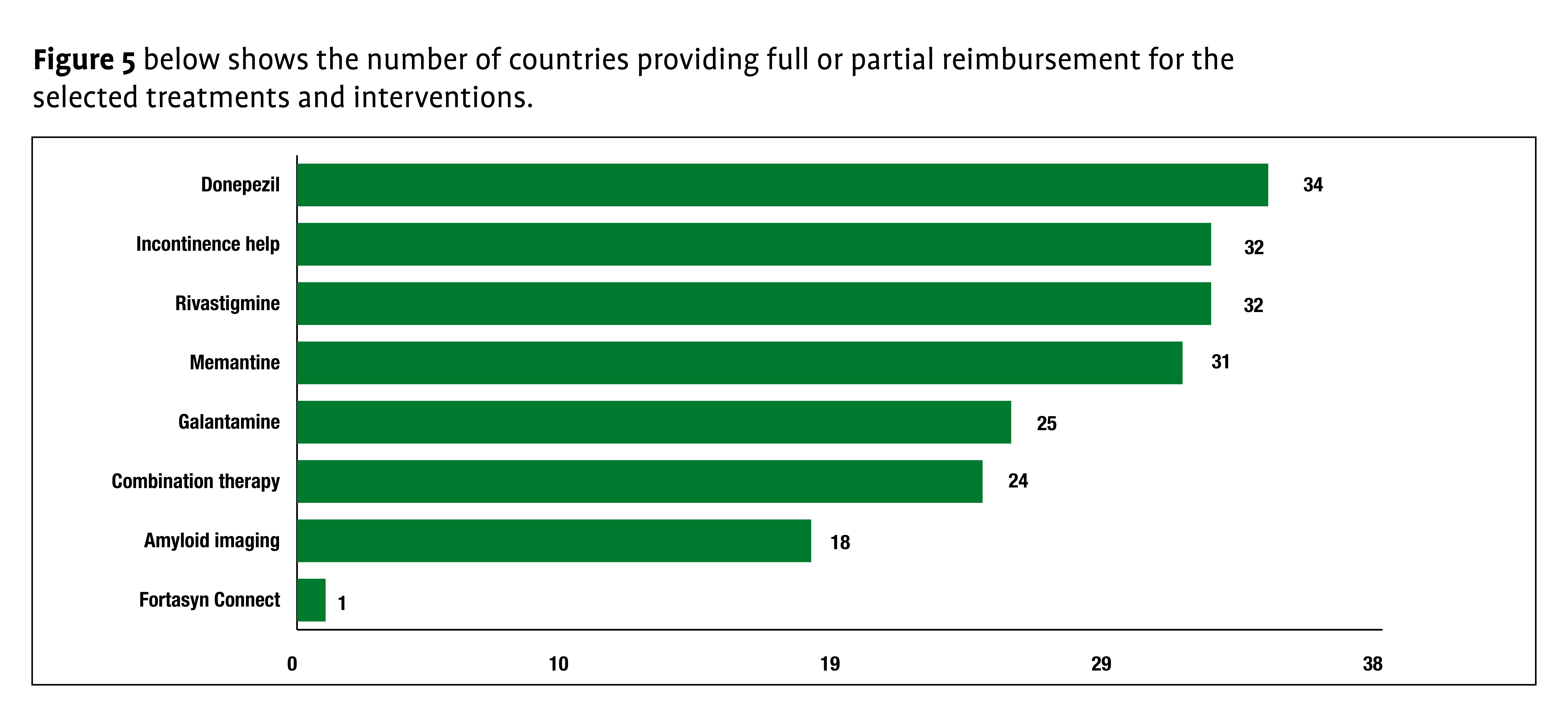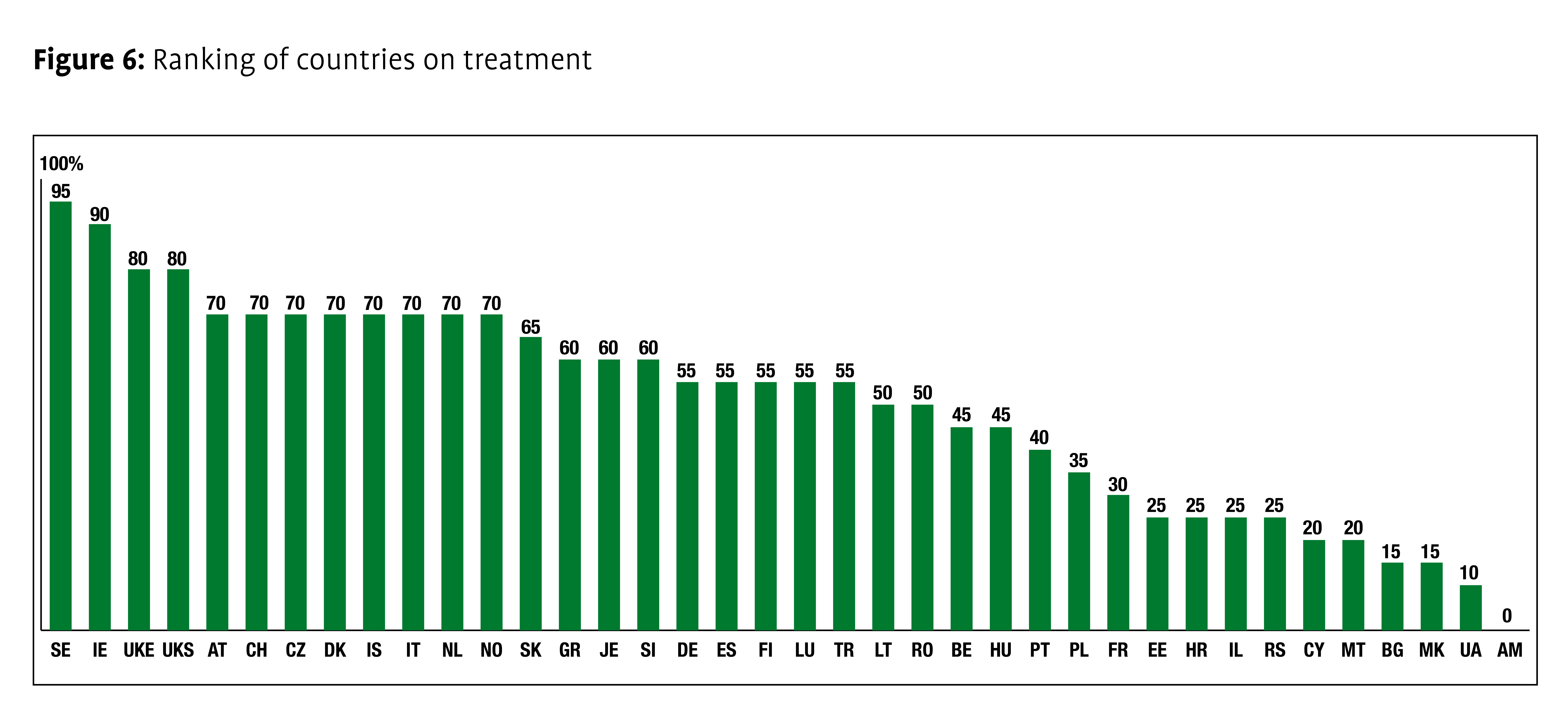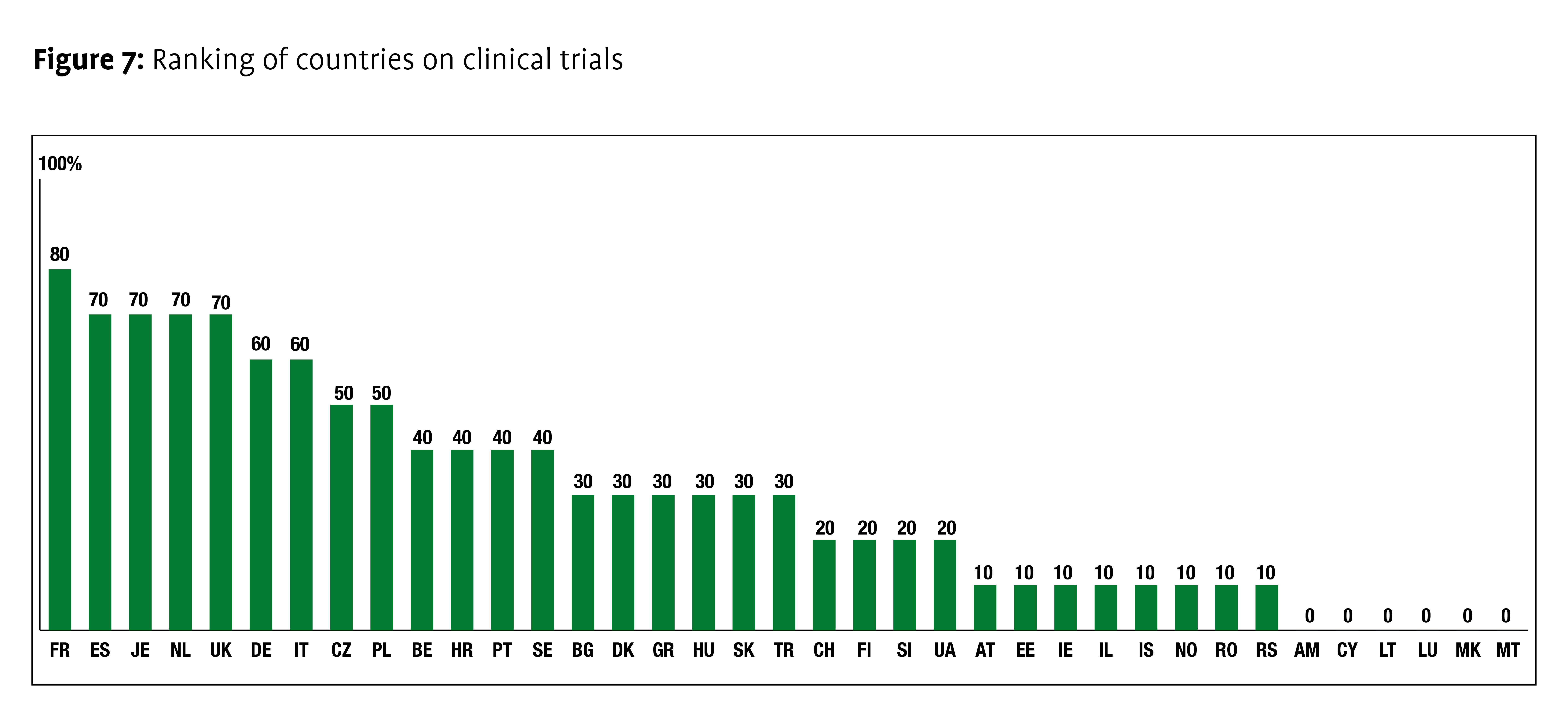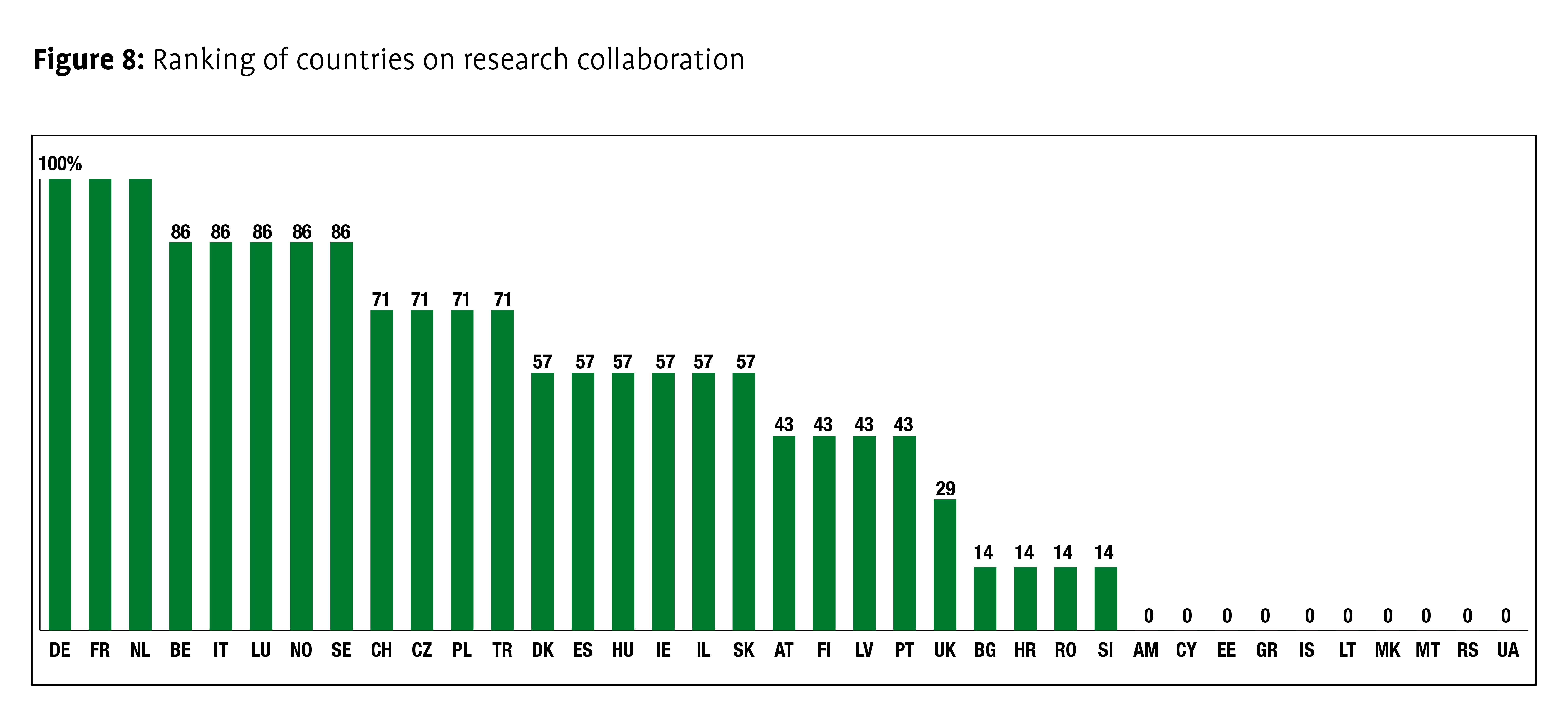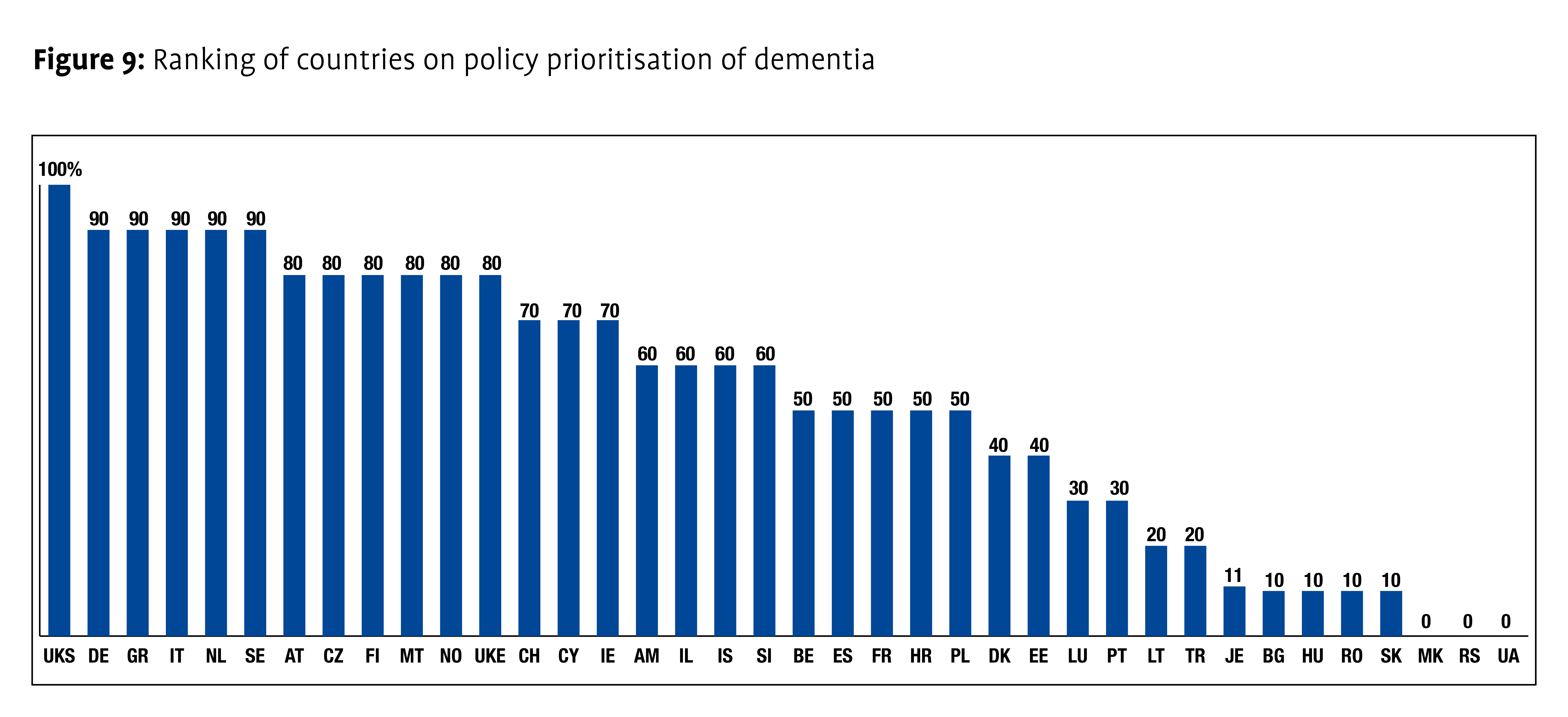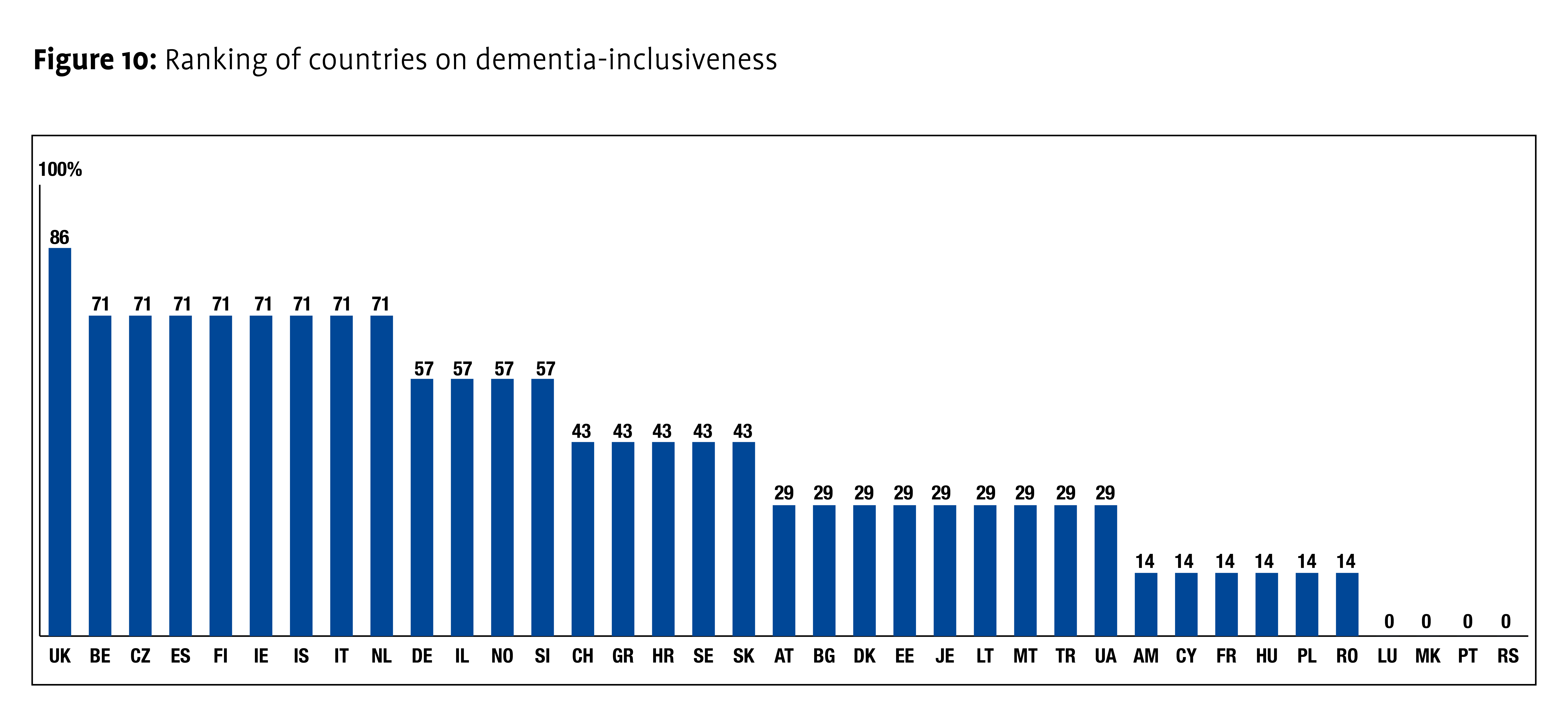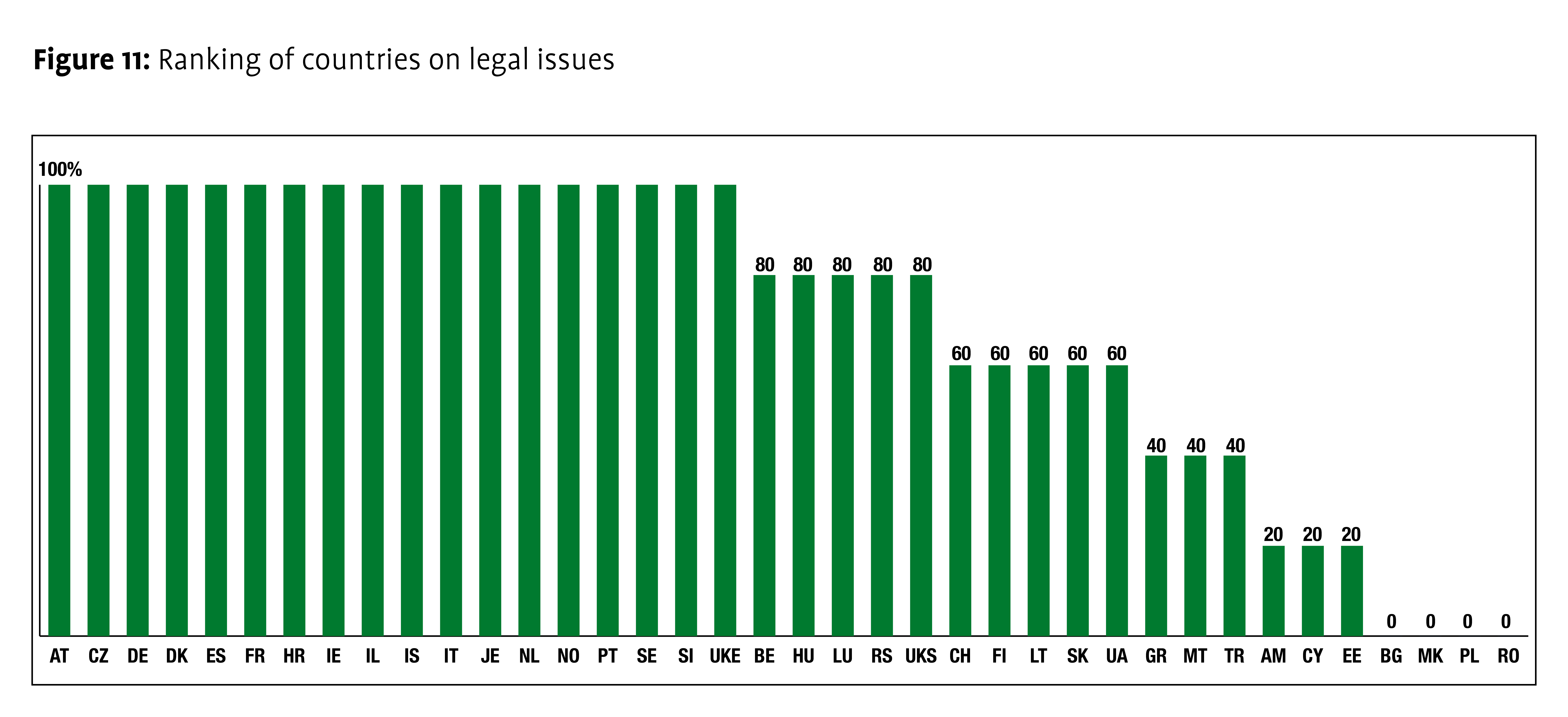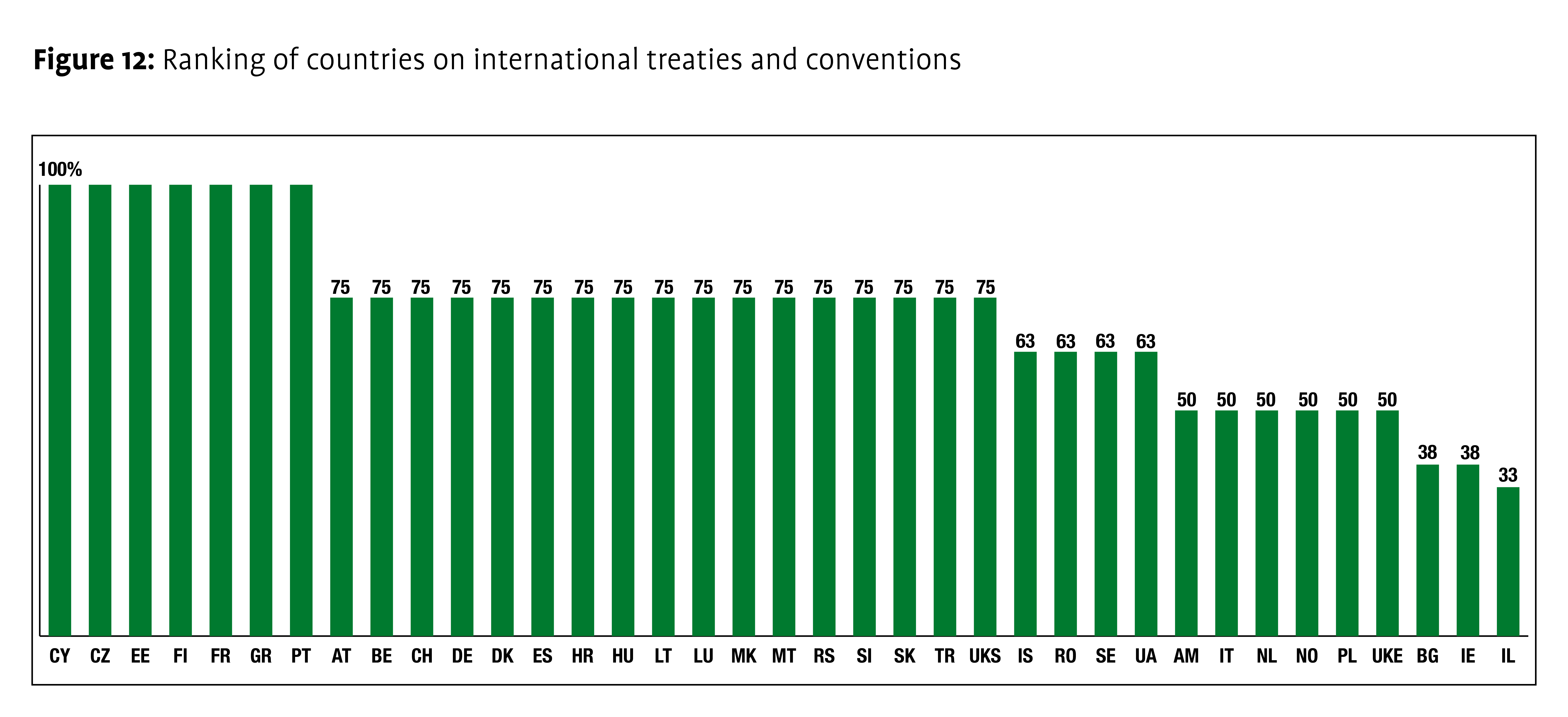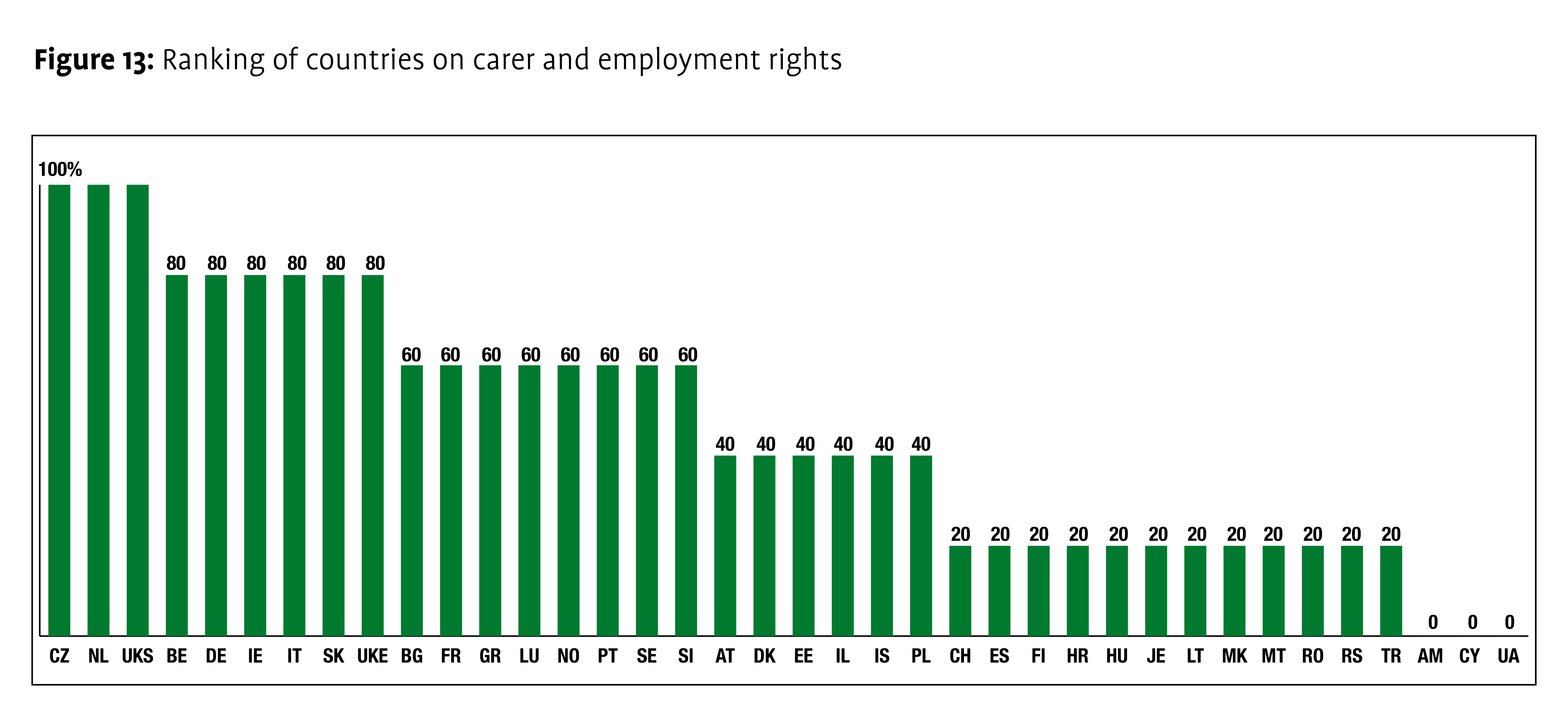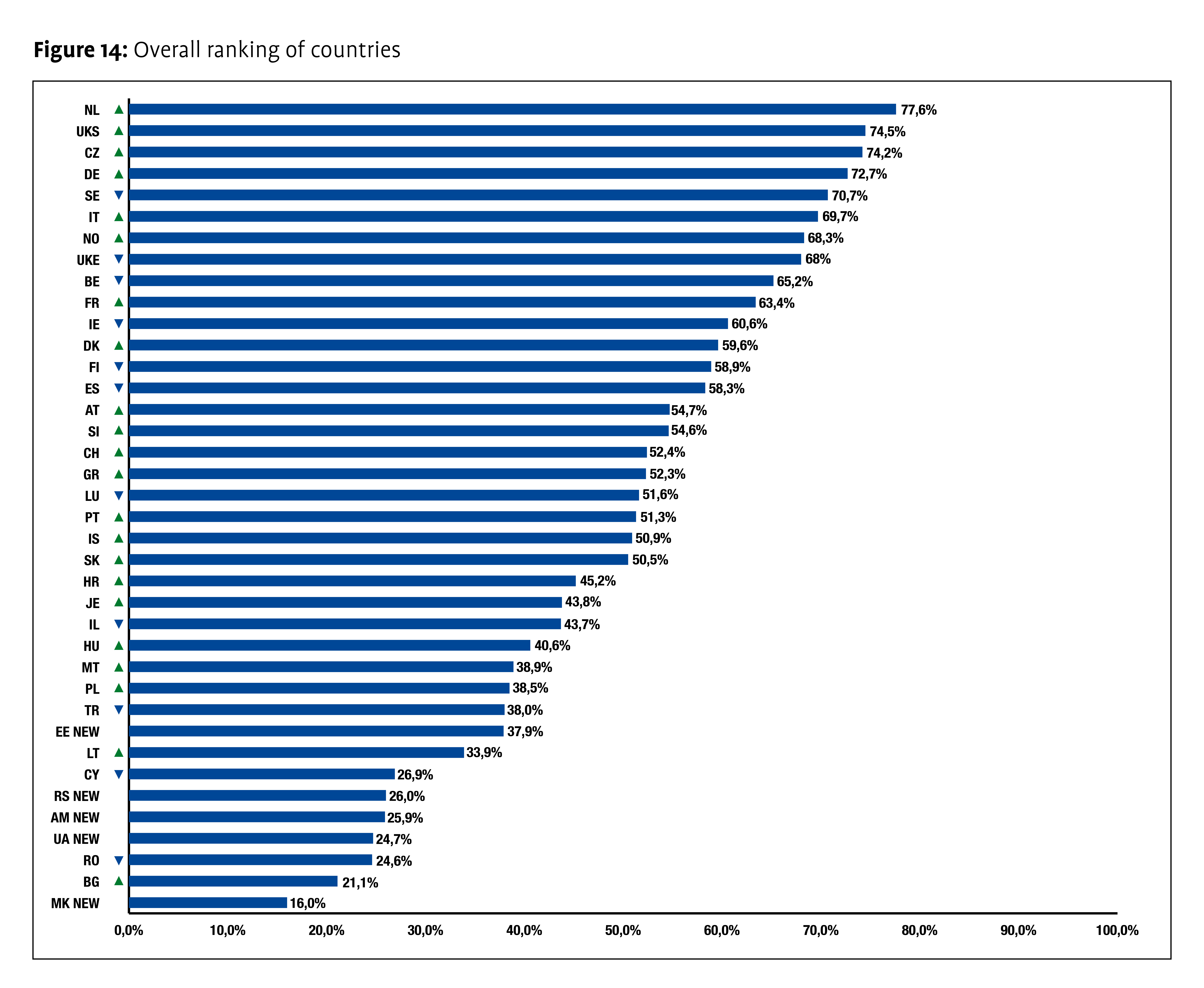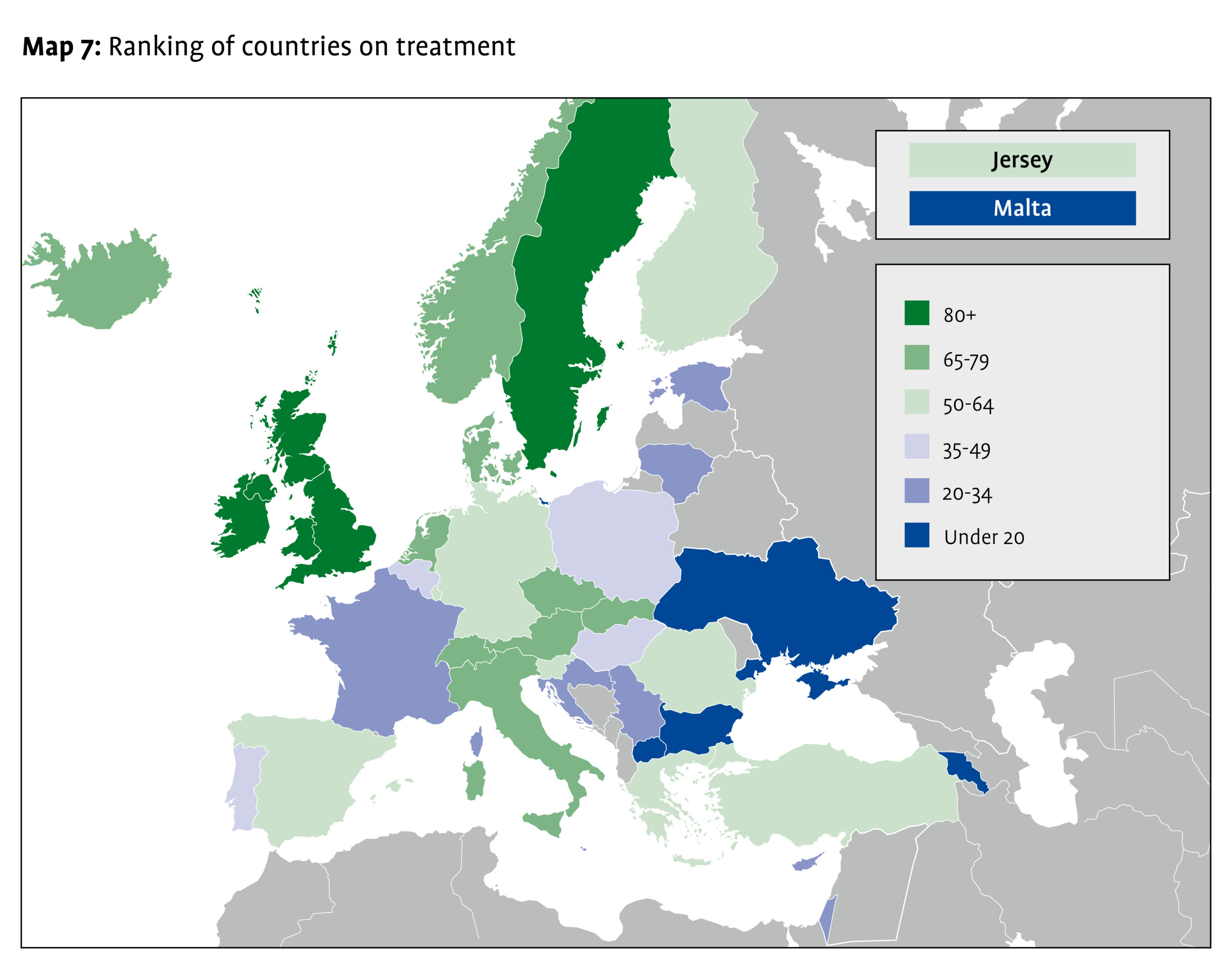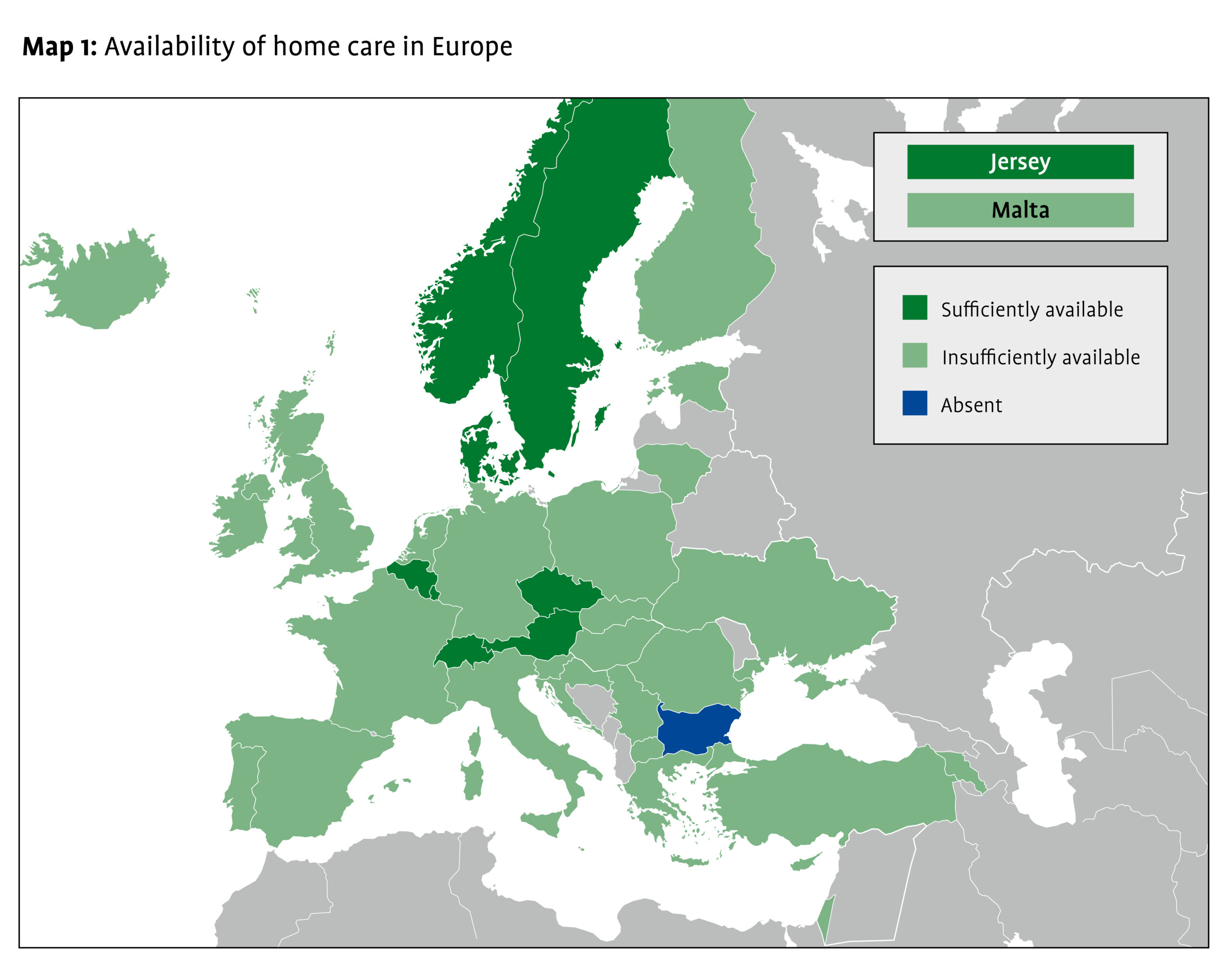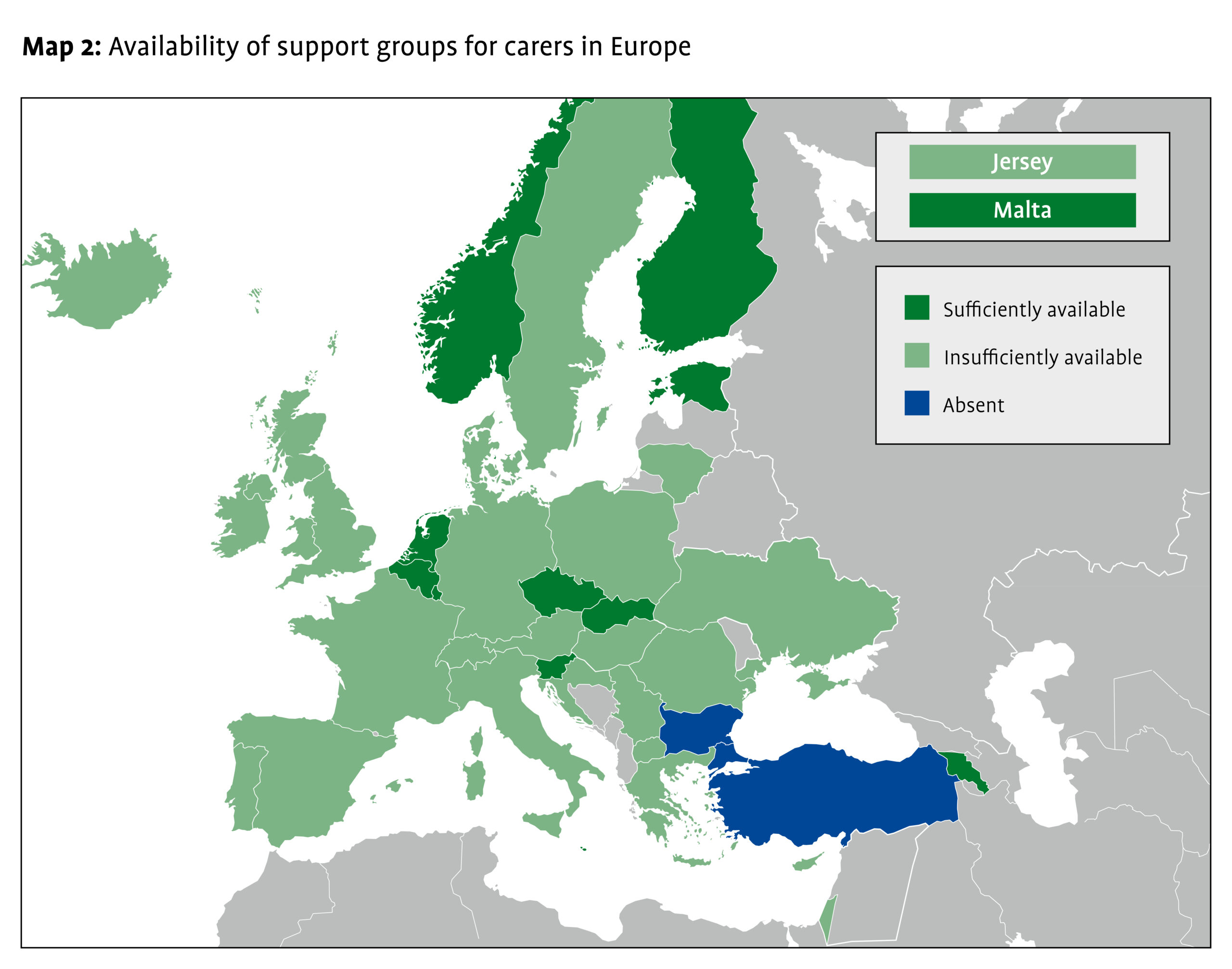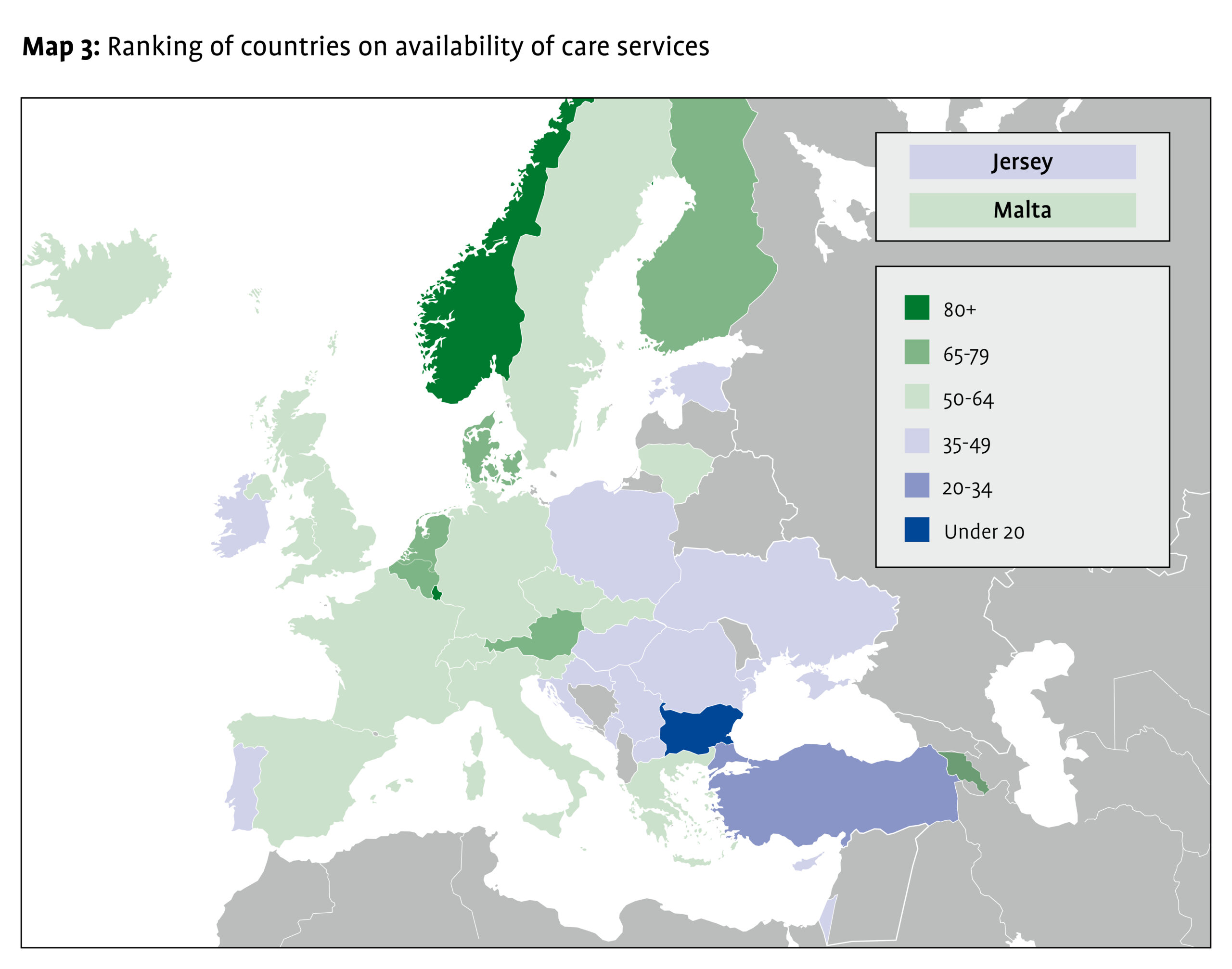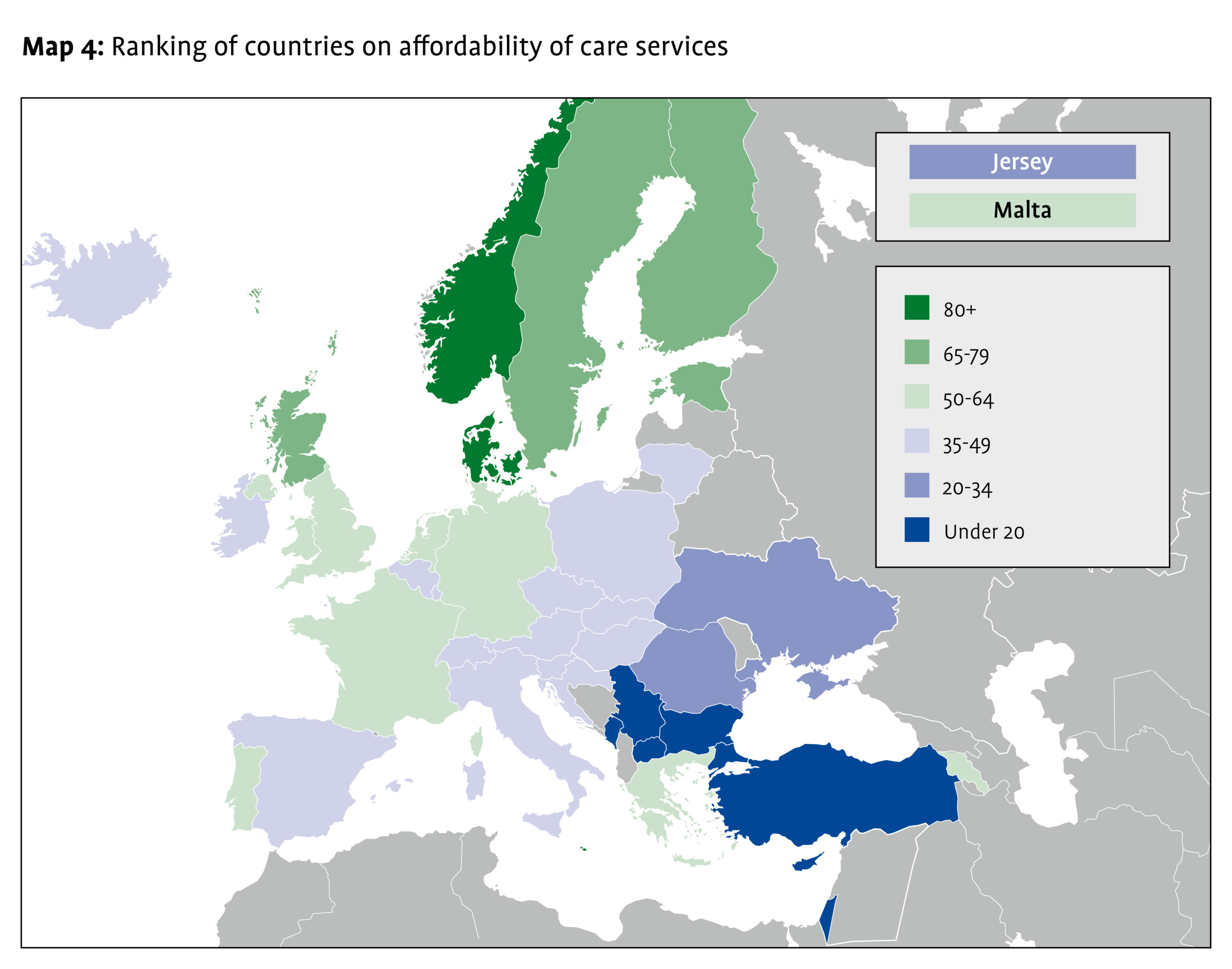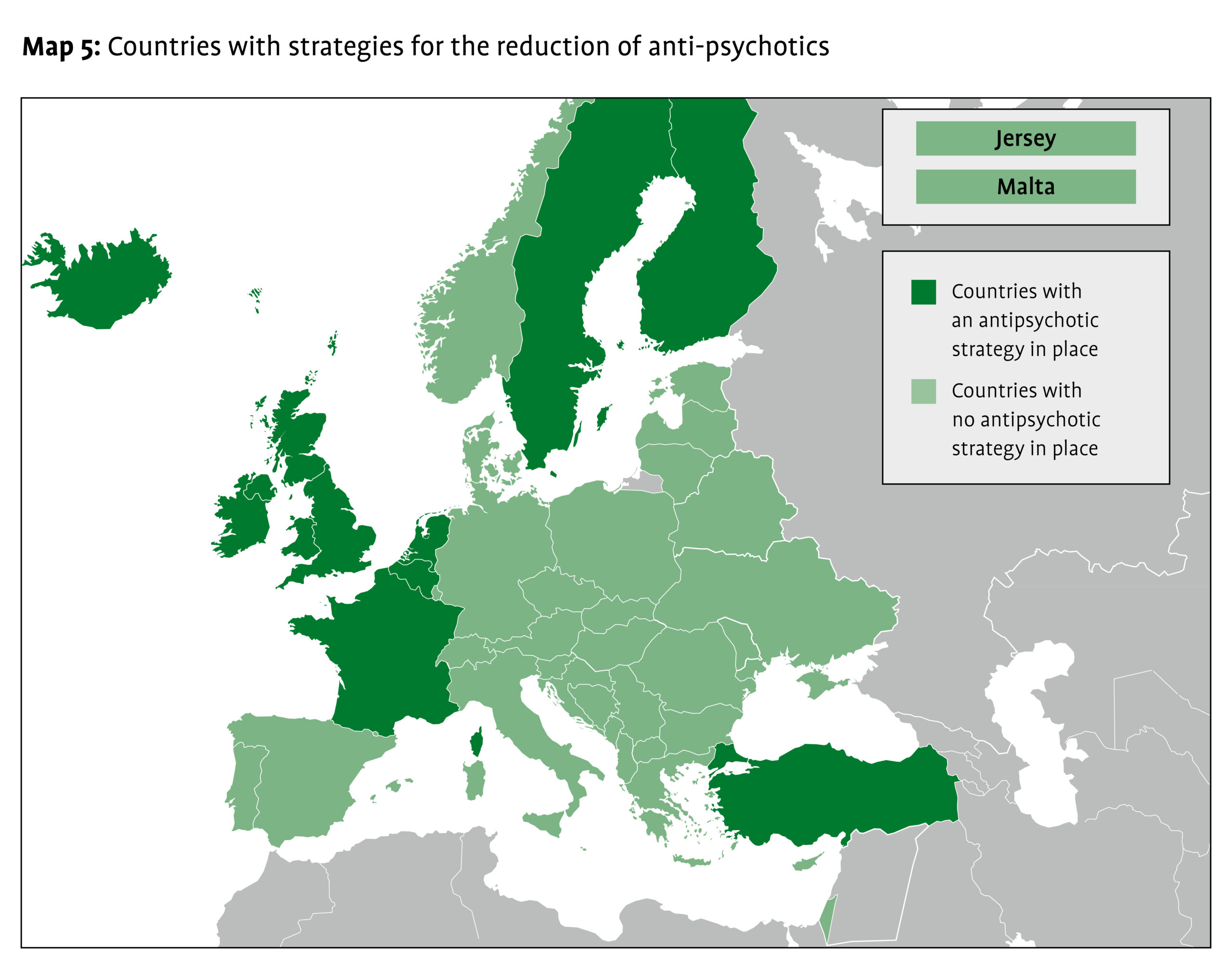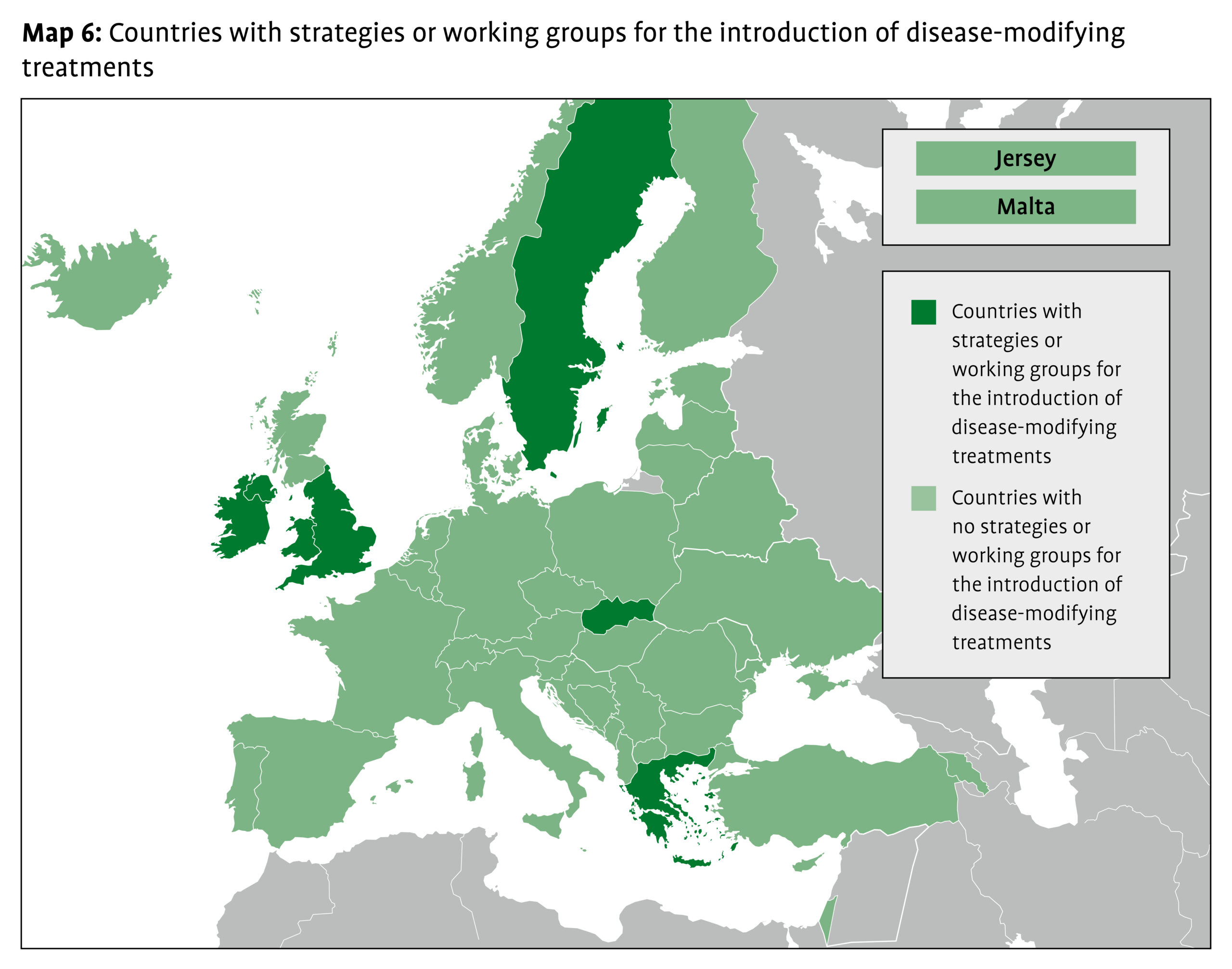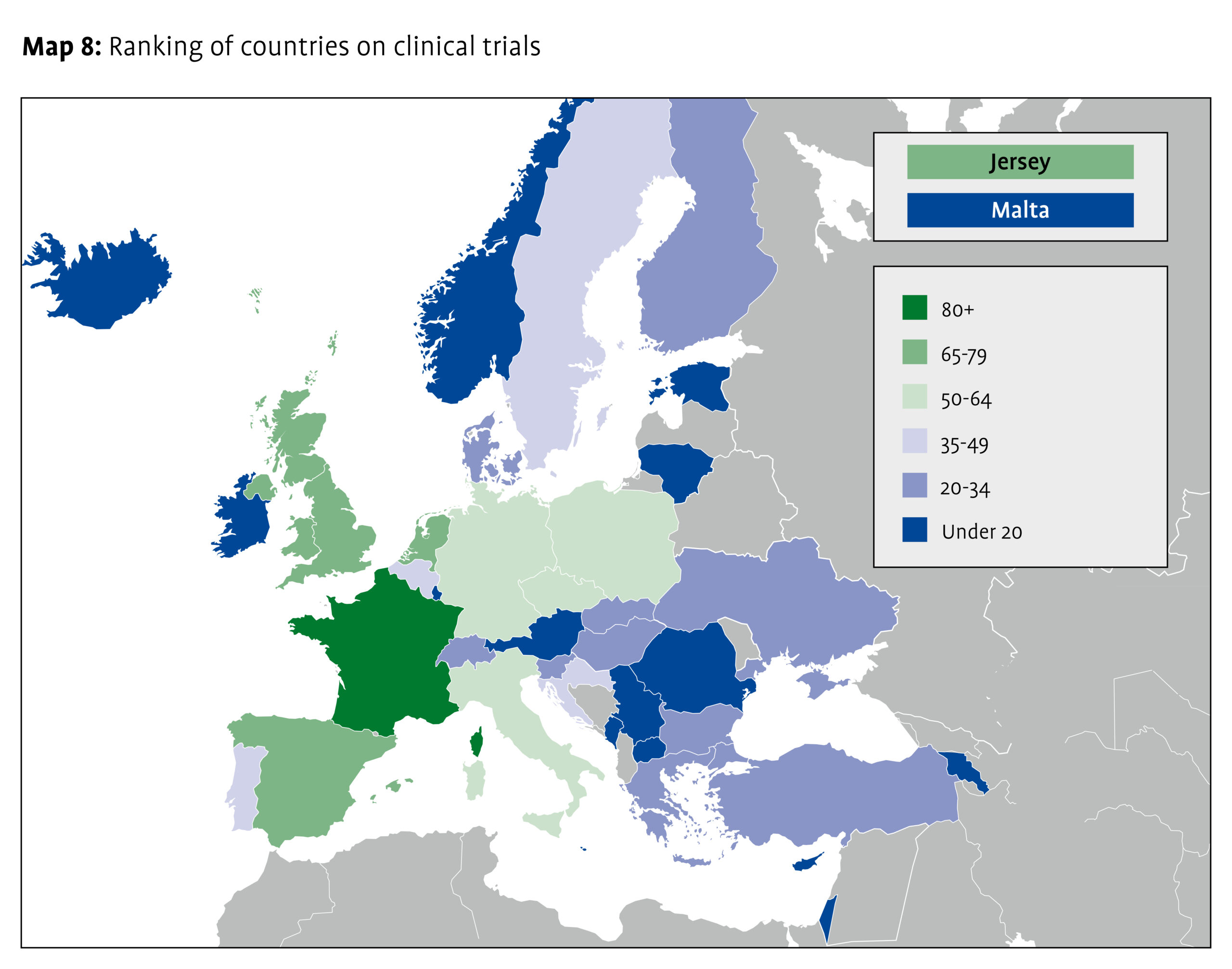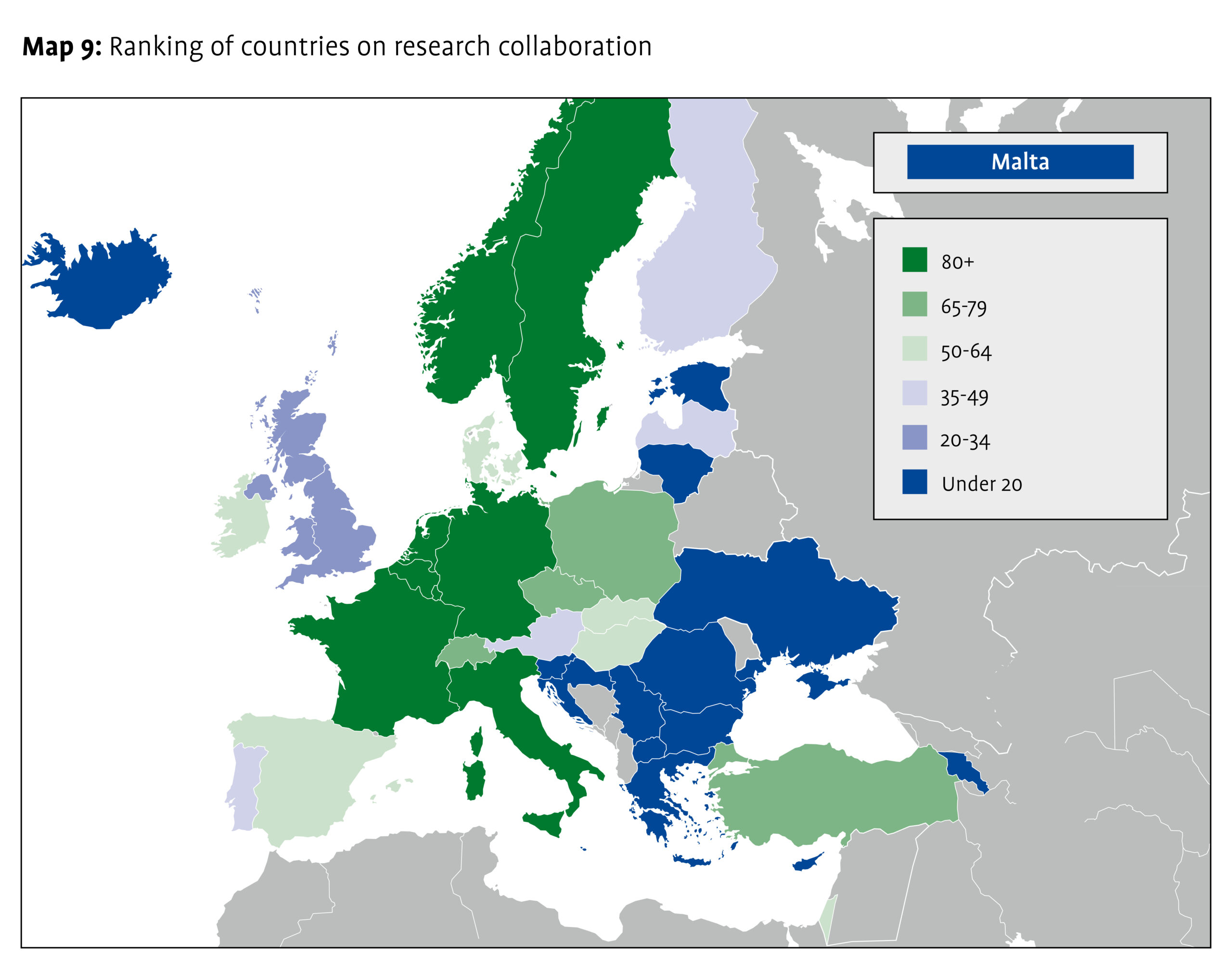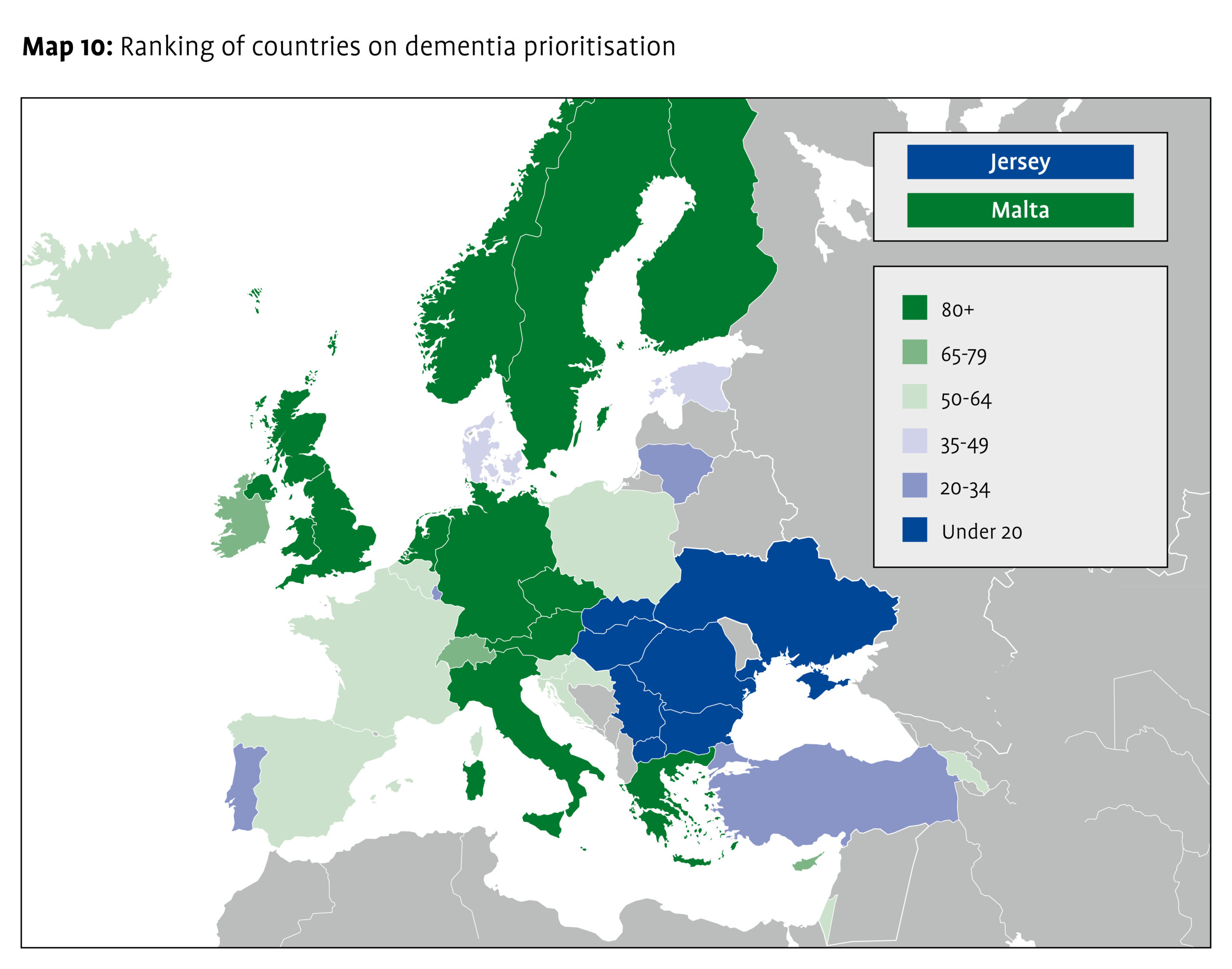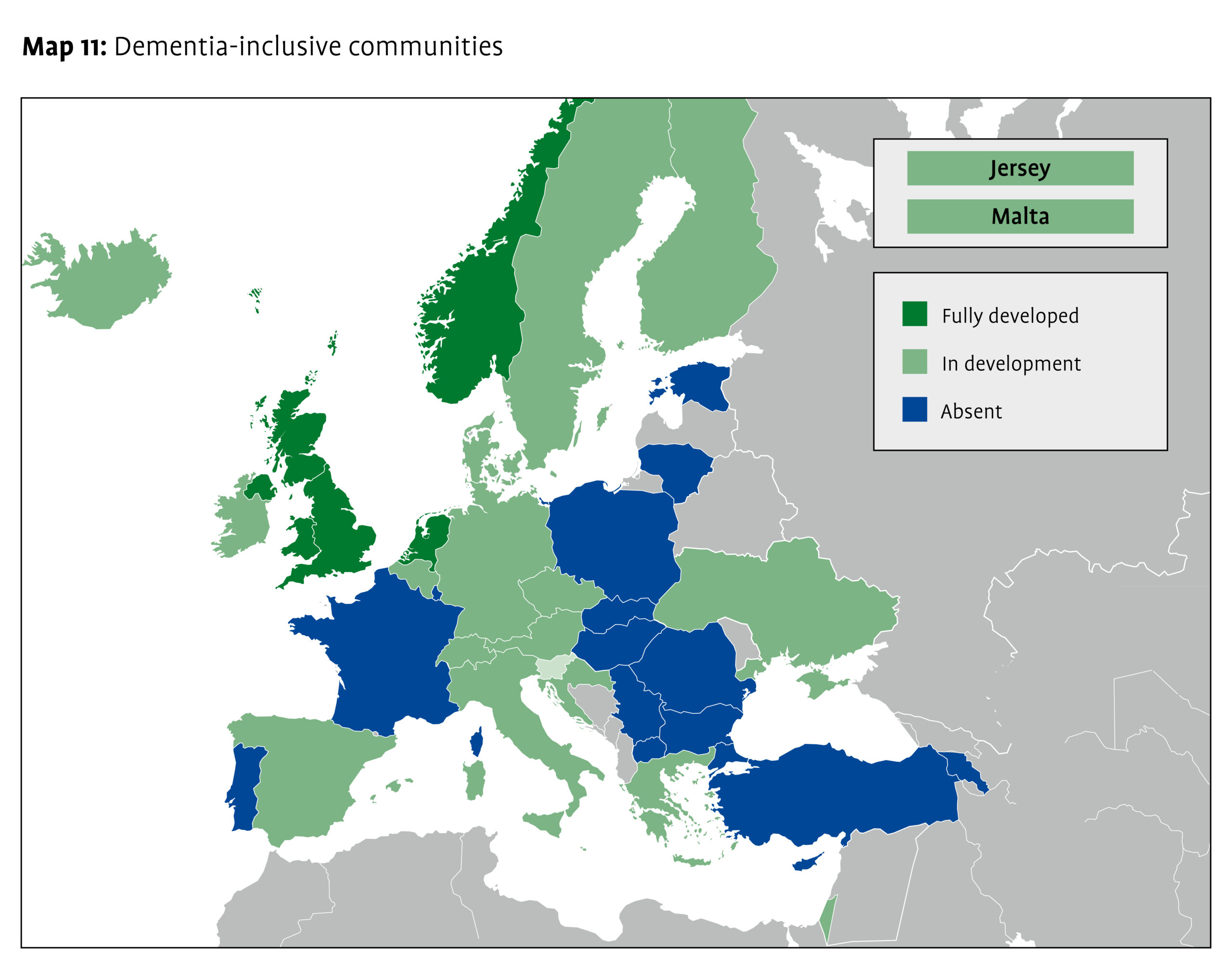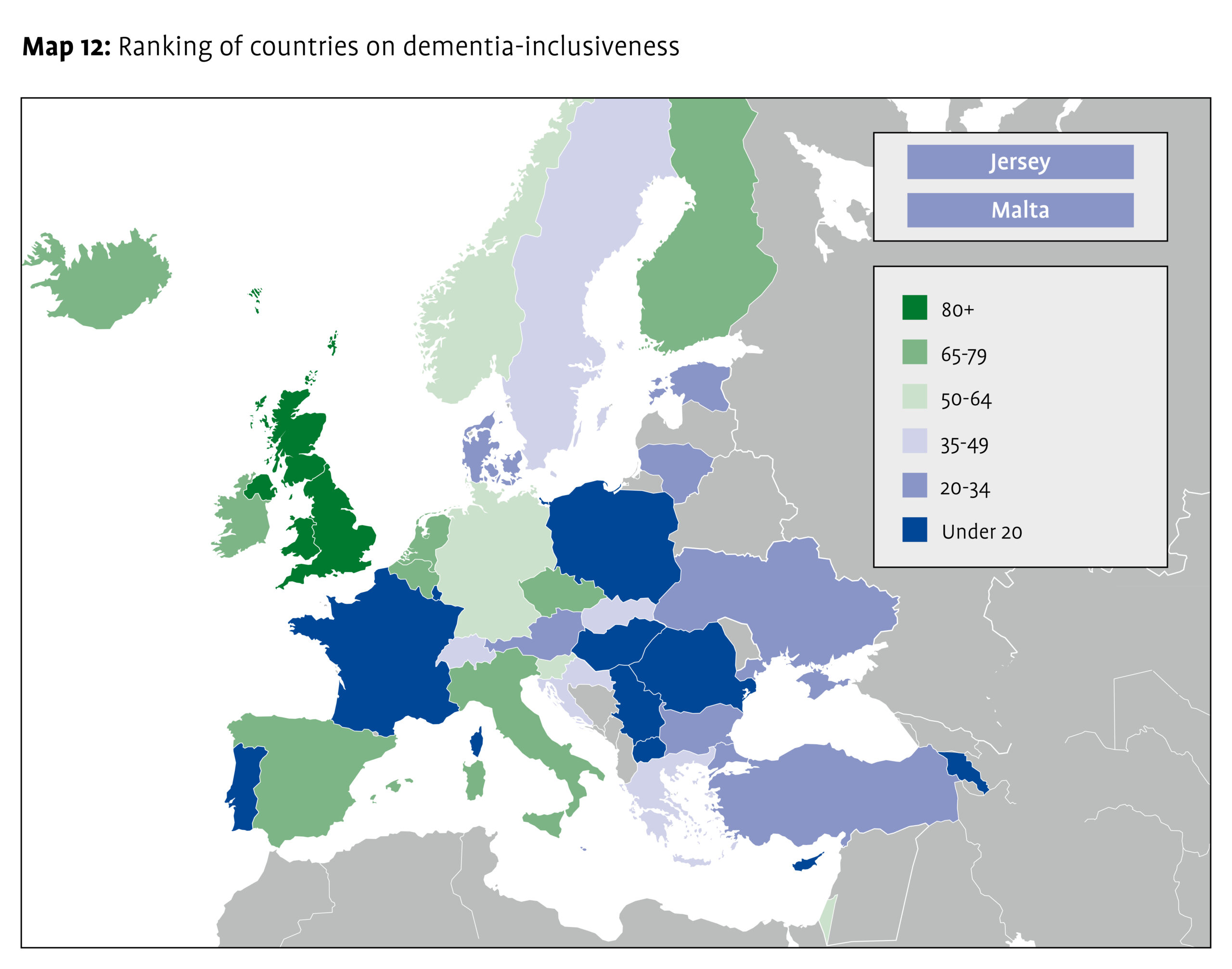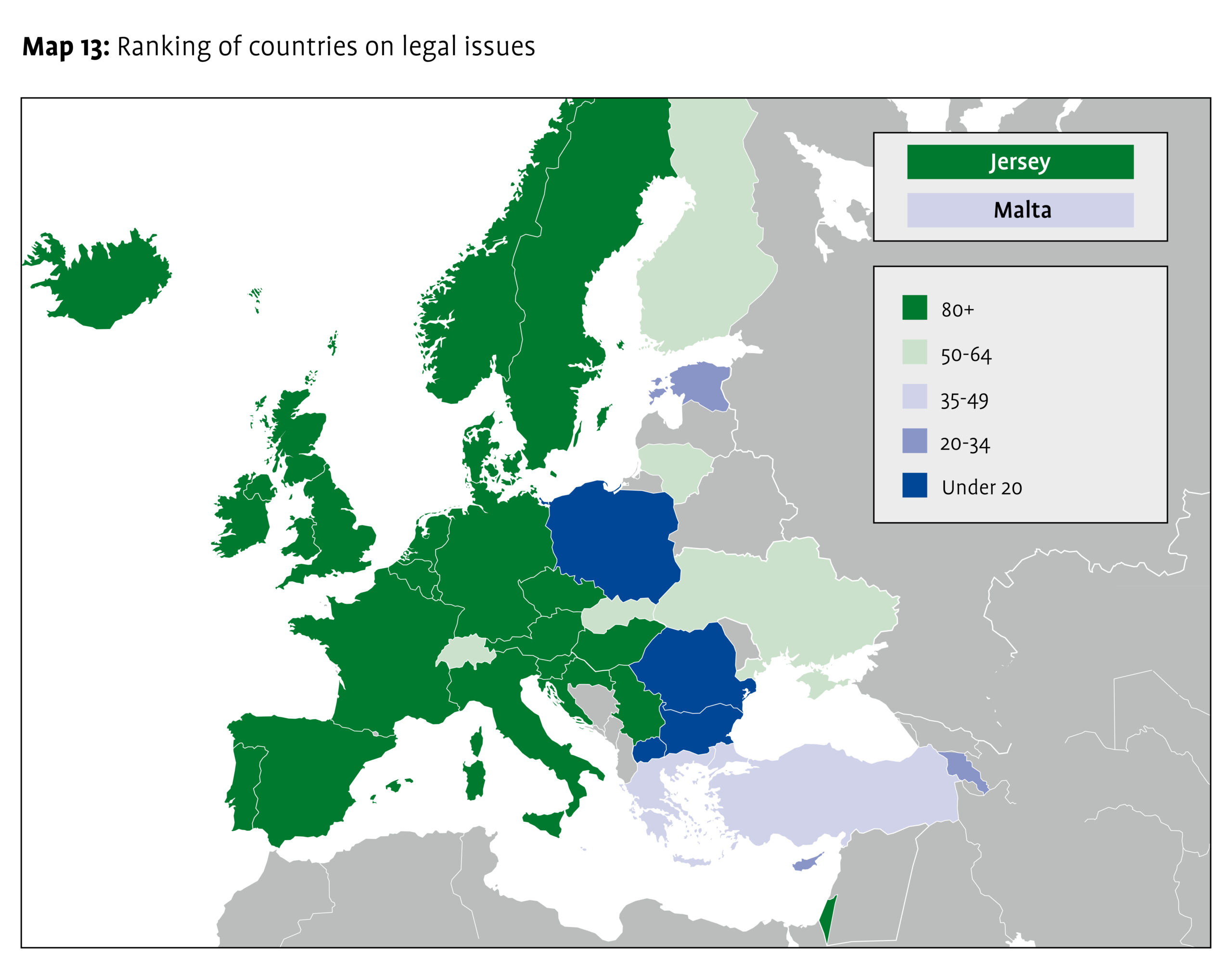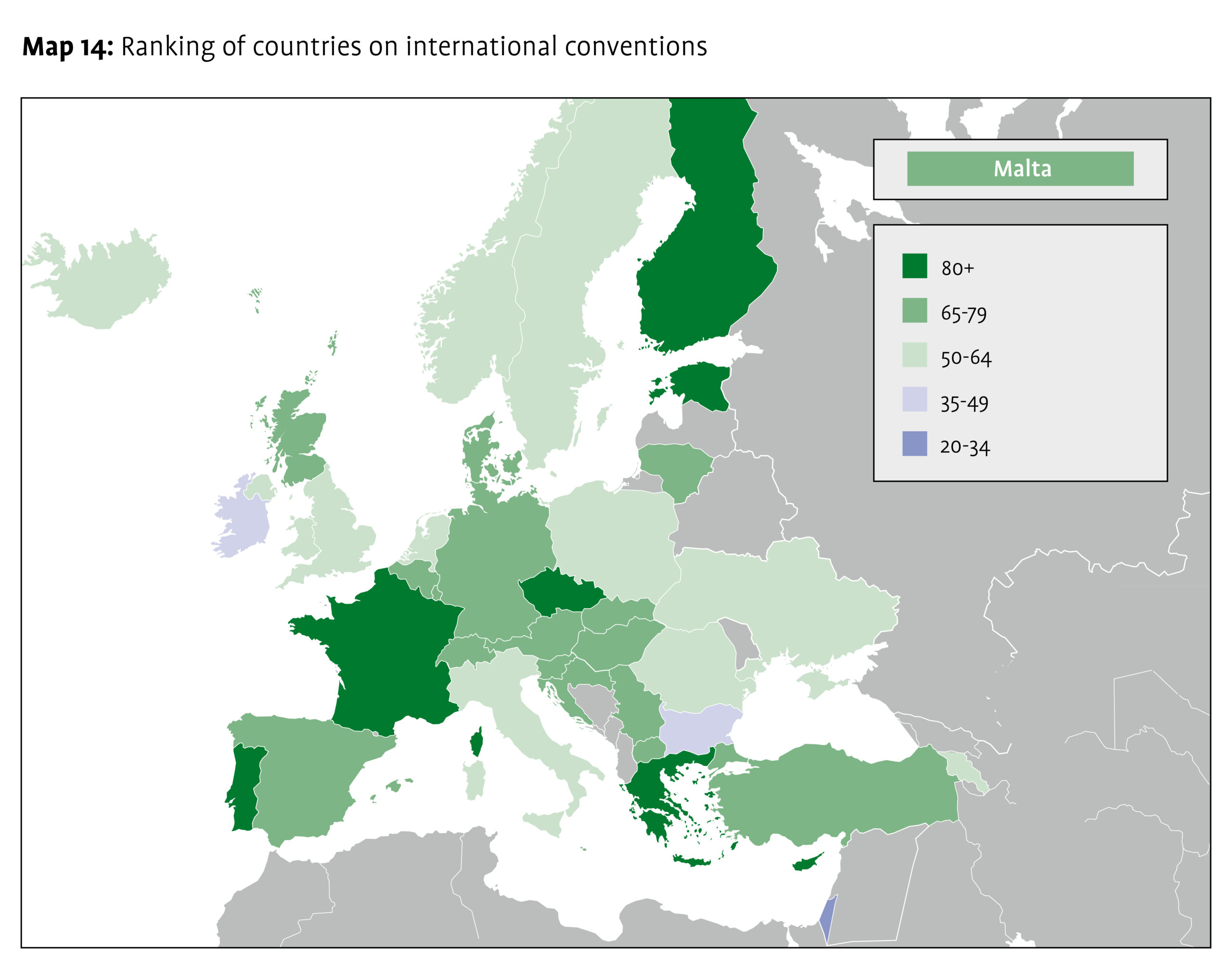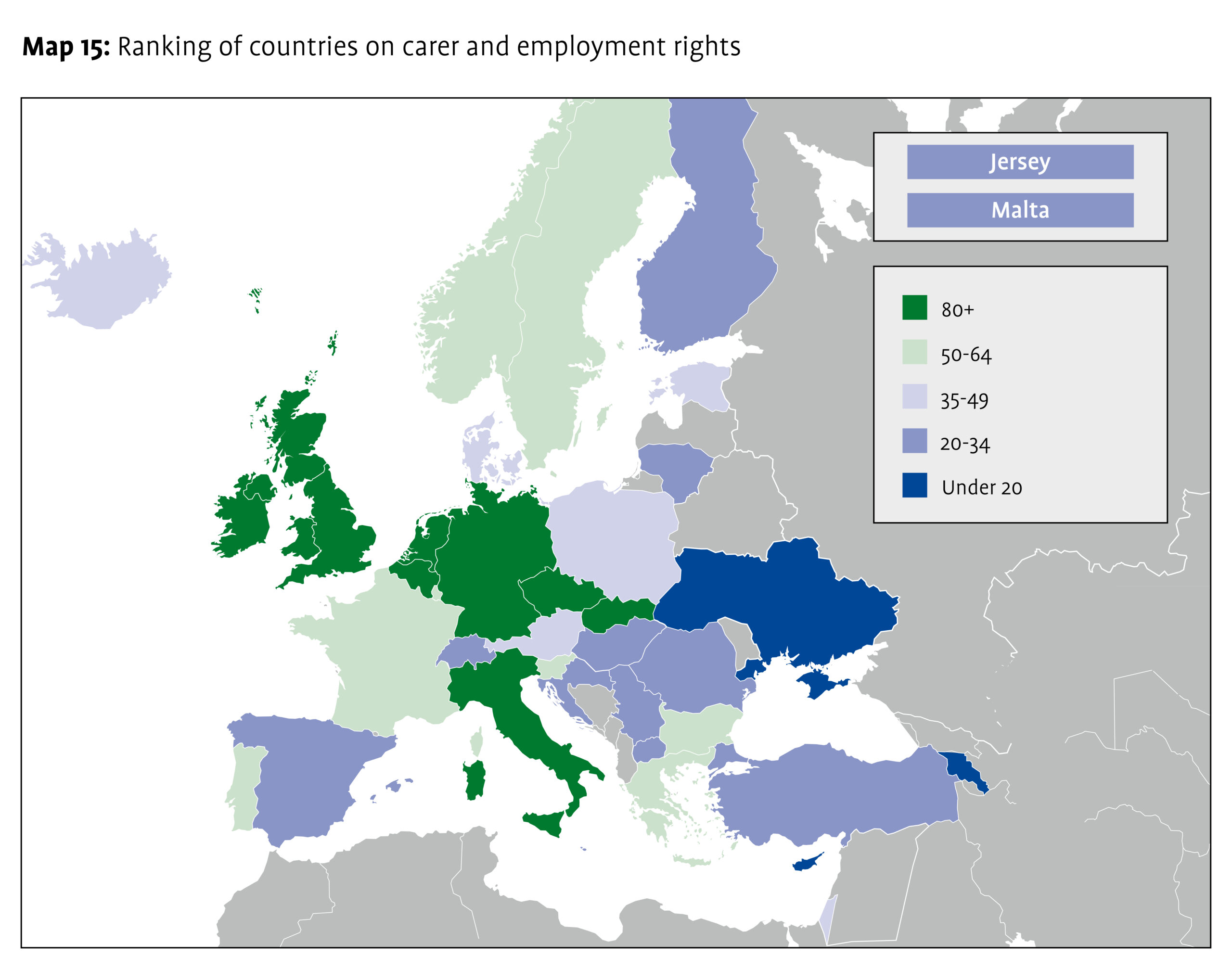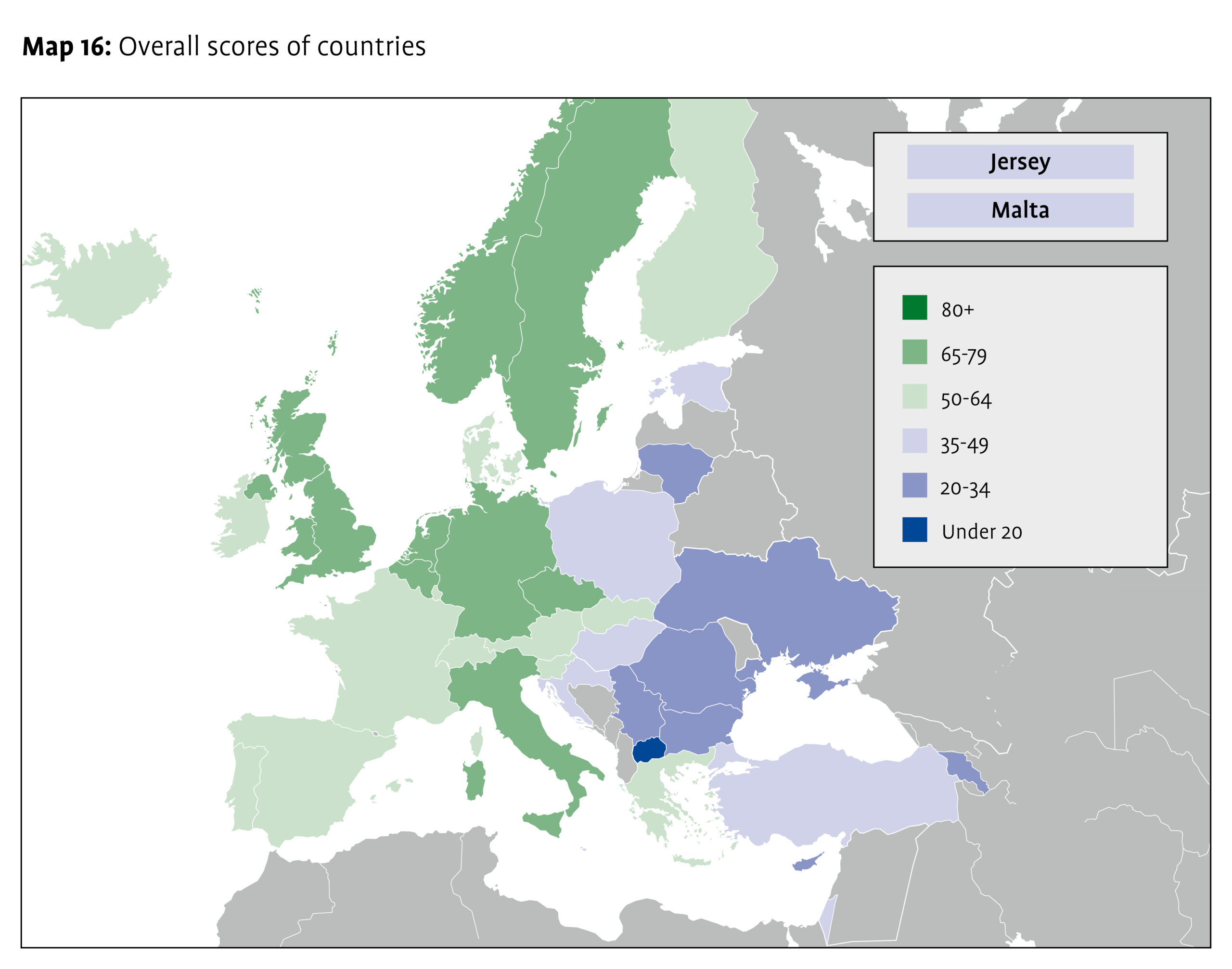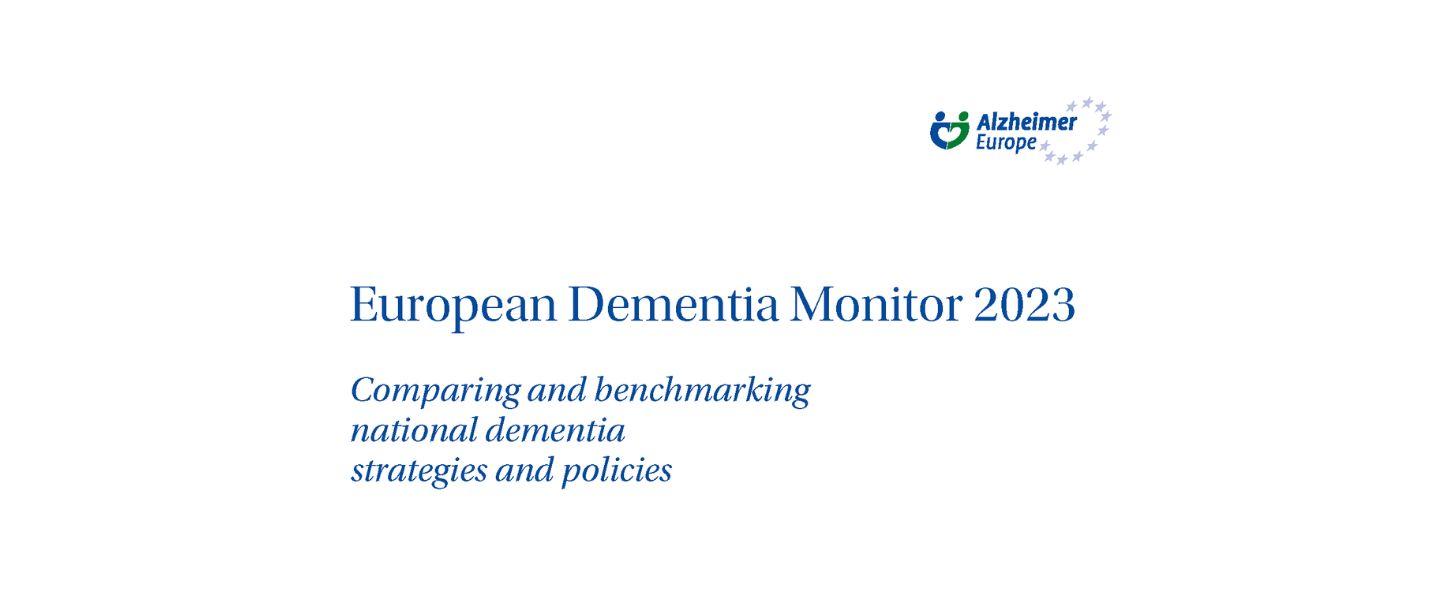
Alzheimer Europe: European Dementia Monitor 2023
On Tuesday, December 5th 2023, Alzheimer Europe published its European Dementia Monitor 2023.
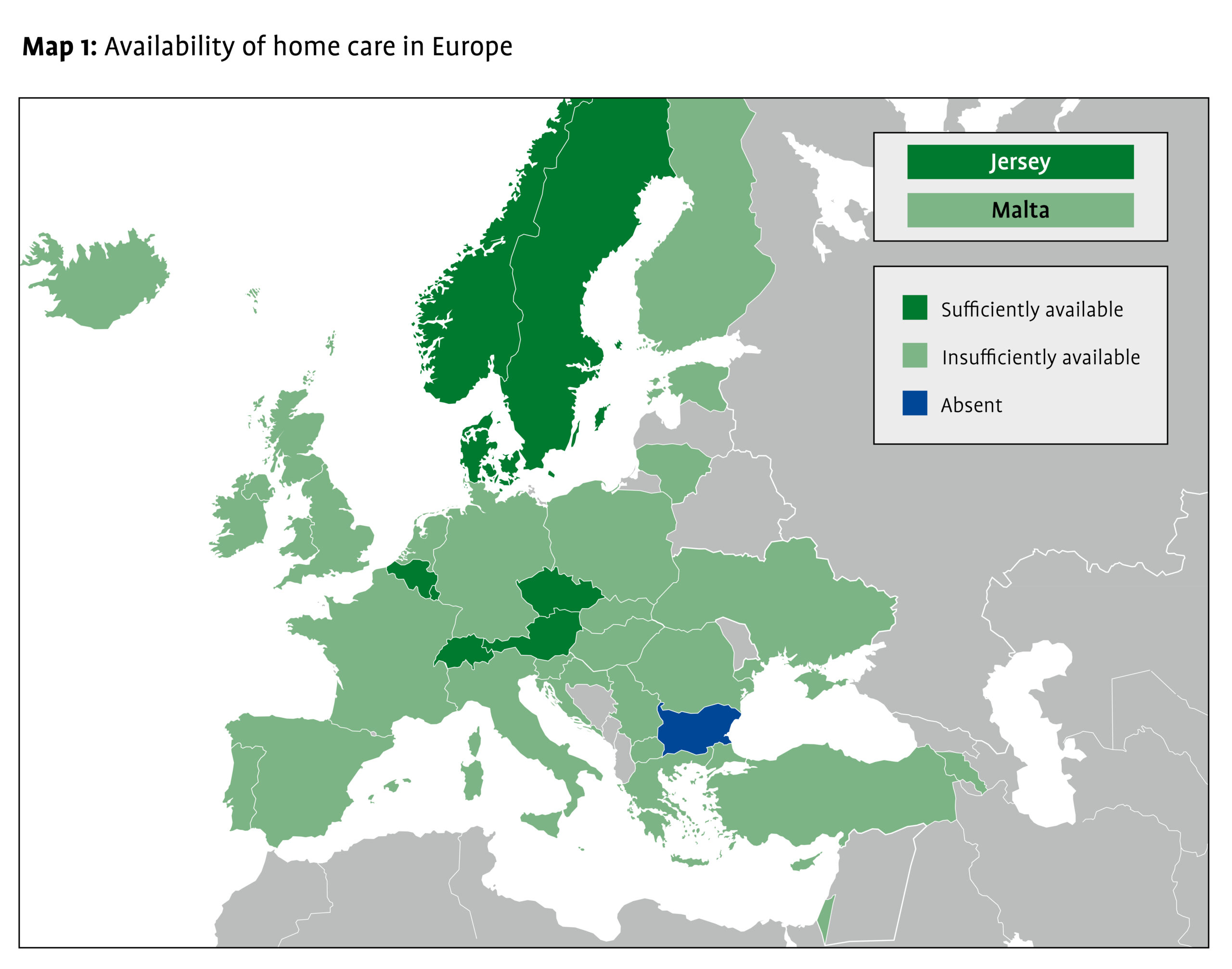
Availability of Home Care in Europe Map
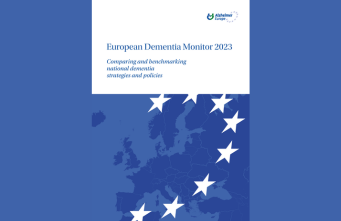
In a report launched today at a lunch debate hosted by Deirdre Clune MEP (Ireland), Alzheimer Europe highlighted the continuing inequalities in access to dementia care and treatment across Europe.
The objective of the report entitled “European Dementia Monitor” was to provide a benchmark of national dementia policies to compare and rate the responses of European countries to the dementia challenge. The survey covered all Member States of the European Union (except for Latvia), Armenia, Iceland, Israel, Jersey, North Macedonia, Norway, Serbia, Switzerland, Turkey, United Kingdom (England and Scotland), and Ukraine.
Jean Georges, Executive Director of Alzheimer Europe, stated: “Our organisation has consistently called upon European governments to recognise dementia as a national public health and research priority, and to develop national dementia strategies. The aim of the European Dementia Monitor is to assess which countries provide the most dementia-inclusive policies and guarantee the best support and treatment of people with dementia and their carers. This third edition of our report shows continuing inequalities between European countries, and we hope that national governments will use this report to improve the lives of people with dementia and their carers in those areas where they are currently lagging behind.”
Andy Heffernan, CEO of The ASI, said: “It is valuable to see where Ireland sits in a European perspective and indeed encouraging to see evidence and recognition of Irish work and progress on dementia as a priority, dementia inclusive communities, human rights and legal issues, carers’ and employment rights and the provision of dementia services. Ireland is one of 10 countries in Europe with a strategy aimed at reducing inappropriate antipsychotic prescribing and one of five countries that has developed strategies or created working groups for the introduction of Disease Modifying Therapies.”
The European Dementia Monitor compares countries on ten different categories:
- The availability of care services
- The affordability of care services
- The reimbursement of medicines and other medical interventions
- The availability of clinical trials
- The involvement of the country in European dementia research initiatives
- The recognition of dementia as a policy and research priority
- The development of dementia-friendly initiatives
- The recognition of legal rights
- The ratification of International and European human rights treaties
- Care and employment rights
According to the findings of the European Dementia Monitor, no country excelled in all ten categories, and there were significant differences between European countries. Some of the key findings were:
- Luxembourg scored highest on care availability, with most services being sufficiently available. In contrast, Norway scored highest on care affordability, ensuring these services were accessible and affordable for people with dementia and their carers. On both care availability and care affordability, Bulgaria ranked last.
- Sweden scored highest on the availability and reimbursement of medical interventions, as all included the national reimbursement system covered medical interventions (except Fortasyn Connect). Armenia ranked last in this category, as no medical interventions were reimbursed.
- As Europe is waiting for the authorisation by the European Medicines Agency of new anti-amyloid treatments for Alzheimer’s disease, only Greece, Ireland, Slovakia, Sweden, and the United Kingdom (England) have set up a working group or strategy to prepare for the introduction of these new treatments.
- France scored highest in the category of clinical trials as the only country where people with dementia could participate in eight of the 10 phase III clinical trials studied for the report. The Netherlands, Spain and the United Kingdom came second, with seven clinical trials active in these countries. Armenia, Lithuania, Luxembourg, Malta, and North Macedonia were on the other end of the scale, with no clinical trials available for people with dementia in those countries.
- France, Germany and the Netherlands were the countries that were the most active in European dementia research collaborations, scoring 100% in that category. In contrast, Armenia, Cyprus, Greece, Iceland, Lithuania, Malta, North Macedonia, Serbia, and Ukraine were not involved in the Joint Programme for Neurodegenerative Diseases Research (JPND) or any of the calls for European research collaboration.
- For recognition of dementia as a national policy and research priority, the United Kingdom (Scotland) came first with full marks. In contrast, North Macedonia, Serbia, and Ukraine scored no points in this category.
- The United Kingdom (England and Scotland) had the most dementia-inclusive initiatives and communities, but Luxembourg, North Macedonia, Portugal, and Serbia scored no points in this category.
- Regarding the protection of the legal rights of people with dementia, a growing number of countries complied with Alzheimer Europe’s five recommendations in this field (Austria, Croatia, Czech Republic, Denmark, France, Germany, Iceland, Ireland, Israel, Italy, Jersey, Netherlands, Norway, Portugal, Slovenia, Spain, Sweden, and the United Kingdom (England). However, Bulgaria, North Macedonia, Poland, and Romania scored no points in this category.
- Concerning International and European Human Rights Conventions, there has been progress since earlier editions of the Monitor (2017 and 2020), with an increasing number of countries (Cyprus, Czech Republic, Estonia, Finland, France, Greece, and Portugal) having signed and ratified all of the treaties. Israel was the country with the least number of conventions signed and ratified.
- The Czech Republic, the Netherlands and the United Kingdom (Scotland) were the countries where all care and employment rights were recognised. In contrast, Armenia, Cyprus, and Ukraine came last in this category, with none of these rights recognised in legislation.
Based on the findings in the ten identified categories, Alzheimer Europe established a ranking of countries (with each category contributing 10% to the overall score), with the Netherlands coming first with an overall score of 77.6%, followed by the United Kingdom (Scotland) (74.5%), the Czech Republic (74.2%), Germany (72.7%) and Sweden (70.7%). Compared to the 2020 edition of the Dementia Monitor, the Netherlands and the Czech Republic improved their scores and ranked the most, moving from seventh to first and 19th to third place, respectively. The United Kingdom (Scotland) and Germany also slightly improved their scores, but Scotland stayed in second place while Germany moved from fifth to fourth place. Sweden moved down from first to fifth place in this year’s ranking, whereas the United Kingdom (England) and Belgium dropped out of the top five and moved to eighth and ninth, respectively.
Andy Heffernan, CEO of The ASI, continued: “We have a lot to be proud of in terms of our meaningful involvement of people affected by dementia through the Irish Dementia Working Group, Dementia Carers Campaign Network and Dementia Research Advisory Team all supported by The Alzheimer Society of Ireland. The Irish approach to dementia voice is respected throughout Europe. However, the Dementia Monitor reminds us that Ireland has not yet signed up to the Optional Protocol to the Convention on the Rights of Persons with Disabilities. The Dementia Monitor shows a need for improved access for Irish people to clinical trials. The creation and funding of Dementia Trials Ireland by the Health Research Board is an excellent step towards improving that access. Ireland has immense talent and passion for dementia research both clinical and academic and we hope to see continued work and development around clinical trials in Ireland.”
Jean Georges, Executive Director of Alzheimer Europe, concluded:
“It was great to see that a number of countries were able to improve the situation of people with dementia and their carers. However, as in our previous editions, we can see that progress is not the same across all European regions. Our Monitor shows that there is still a clear East/West divide in Europe with most of the Western and Northern European countries scoring significantly higher than Eastern European countries. As a rule, countries with national dementia strategies scored better. It is time, therefore that all European countries and in particular those in Eastern Europe recognise dementia as a national priority and develop national dementia strategies.”
Andy Heffernan, CEO of The ASI, concluded: “While our overall ranking is strong, improvements can always be made, and the Dementia Monitor shows a need for increased services and supports for people living with dementia. We know that despite significant multi-annual funding for dementia by this Government, there is a need for increased availability of care services in Ireland. We hear this through our own research and from people who contact our Dementia Advisers and information team. In Ireland, there has been a very strong commitment to find the solutions and support for the many people living with dementia and those who care for and support them. I am confident that with the ongoing support of Minister Butler and the work of the National Dementia Services and HSE, we will continue to improve the lives of people affected by dementia.”
The full report can be downloaded at this link.

